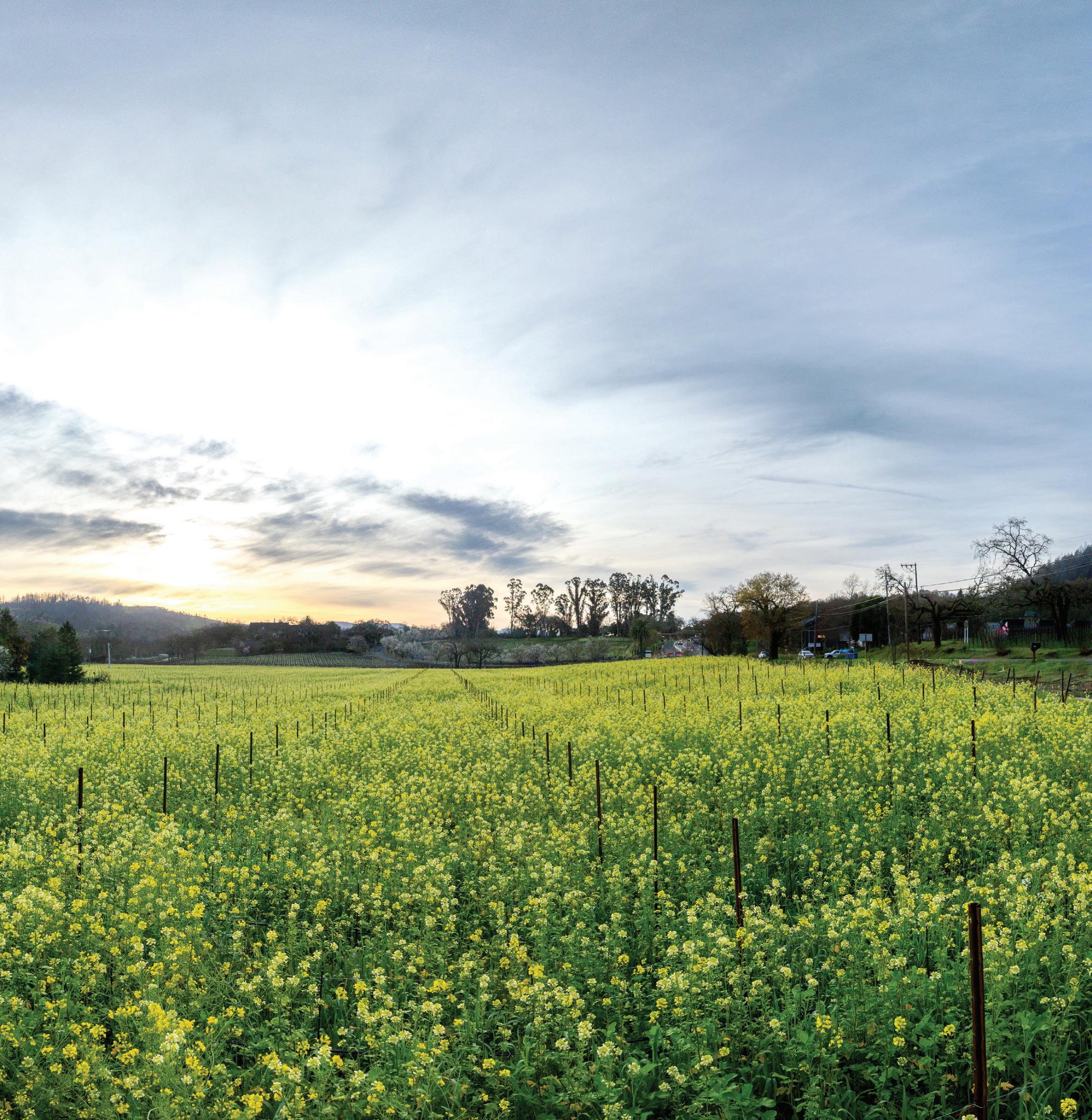

TOGETHER WE RISE FOR THE COMMUNITY
LETTER FROM CURT HUDNUTT
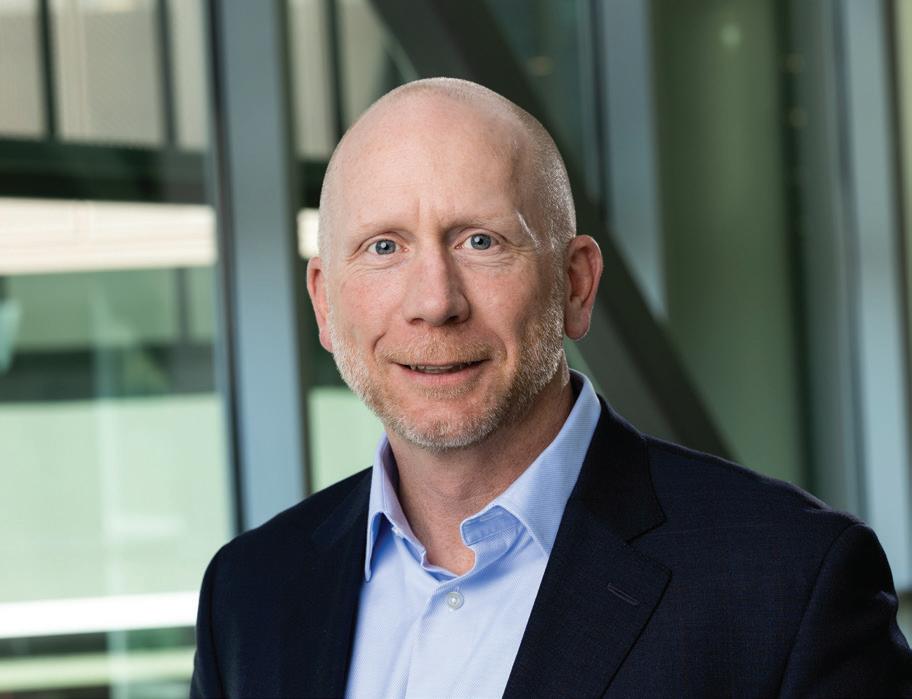
S“When challenges arise in agriculture, the spirit that keeps our communities resilient is demonstrated in the grit and commitment that goes into doing the work.”
erving farmers, ranchers, and our neighbors in rural communities is the core value that underpins everything we do at American AgCredit. As a third-generation farmer who lives in a rural community, I’m proud to share that these acts of service go far beyond how we fulfill our mission as a financial services cooperative for agriculture. Whether it’s youth programs like Future Farmers of America (FFA), a local food shelf, or help when a disaster hits, we show up for our neighbors. We do this through direct giving, sponsorships, volunteer hours, scholarships, and programs focused on promoting youth in agriculture, and those who are just starting out or running small farms.
When it’s all said and done, it’s not just about money and volunteer hours – it’s about supporting people. We’re part of the fabric of the communities where we live and work.
It’s our hope that this report brings the acts of service to life through the voices of the people across our territory who are showing up to help. When challenges arise in agriculture, the spirit that keeps our communities resilient is demonstrated in the grit and commitment that goes into doing the work. It’s a privilege to share just a few of these stories in this report. Looking ahead, in 2025 we’ll grow our support for farmers and ranchers by sharing important stories that help shed light on the mental wellness crisis in rural America. Stay tuned.
Curt Hudnutt Chief Executive Officer
In our communities, the people we support are those shopping next to us in our grocery stores. Our neighbors. Our childhood friends. Our former classmates. The people who produce food for our tables. The people who watched us grow. The people who are there to lend a helping hand when we need it most.
And no matter where life takes us, agriculture is a part of us. Together, we walk through the ups and downs of this industry, just as Farm Credit has done for more than 100 years.
FOOD ACCESS ORGANIZATIONS
$788,000
DISASTER RELIEF
$70,000
TOTAL COMMUNITY INVESTMENT
$2,508,279
NEXTGENERATION AGRICULTURE
$1,650,279 63
EMPLOYEEDIRECTED GIVING $550,000 NONPROFIT PARTNERS
EMPLOYEE VOLUNTEER HOURS
1,709
OUR THREE PILLARS OF GIVING
Our customers, community partners and employees share a commitment to a greater purpose — to do the work: the work needed to feed people and families, nurture the land, protect generational legacies and support each other.
NEXT-GEN AGRICULTURE
1 PILLAR 2 PILLAR 3
From supporting young and beginning producers to programs and practices that help farmers and ranchers serve evolving consumer preferences, we invest in the future of ag.
FOOD FOR PEOPLE
We proudly work with organizations working to end hunger, increase food security and support producers providing food for our country.
DISASTER RELIEF
We stand ready to help our communities in the aftermath of natural disasters through support of immediate response and long-term recovery efforts.
Food organizations supported: 41
Equivalent to more than 2.8 million pounds of food provided
*Calculated by industry standard of 1 meal is equal to 1.2 lbs of food
And more than 2.3 million meals
*Calculated by industry standard of $1 is equal to 3 meals
THE FUTURE OF AGRICULTURE
FFA and 4-H Support: $400,000+ donated
More than $200,000 directly provided to students through State FFA associations
Total scholarships provided: $113,400 provided through 64 scholarships
AgYouth program: More than $400,000 to help school-aged students finance
THE IMPACT TO PEOPLE
A SUSTAINABLE FUTURE
Connecting Consumers to Sustainable Ag: Lake States Dairy Center
The initiative
• Seven Farm Credit associations across the U.S. came together to support Indiana-based Lake States Dairy Center, which aims to help connect consumers with the innovations of the dairy industry and sustainable agricultural practices that impact their daily lives.
• Lake States Dairy Center operates as a not-for-profit alongside Fair Oaks Farms. Its mission is to enhance public knowledge and education of sustainable agricultural practices, livestock and food production.
Why it matters
• Being transparent about farming practices can help consumers better understand everything that goes behind producing food and other products.
• With sustainability at the center of it all, places like the Lake States Dairy Center approach learning in an engaging way, showcasing the extensive care for animals and the practices that impact food and land.
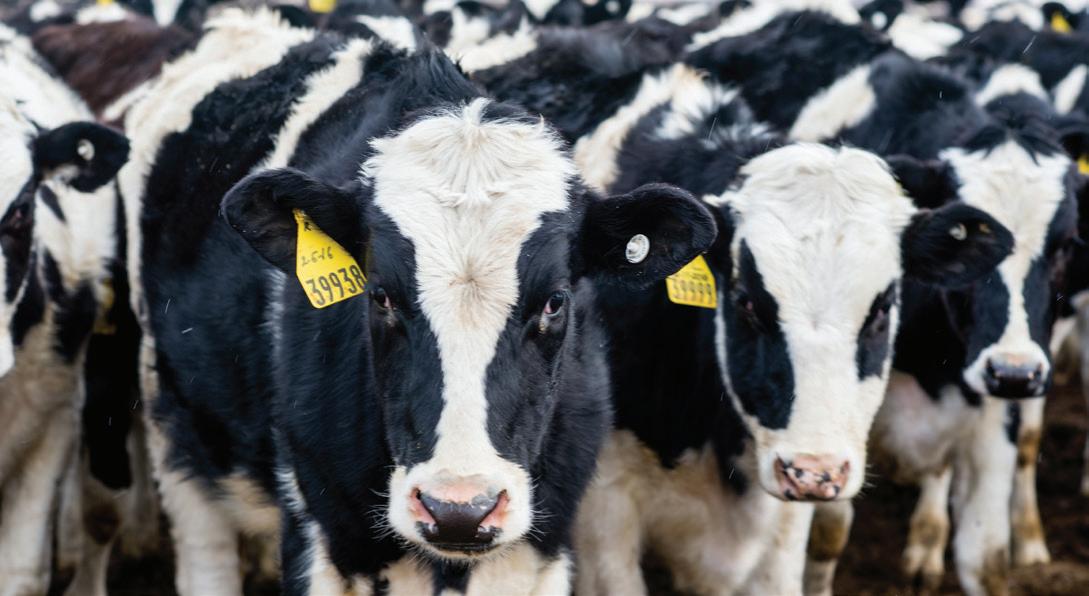
• For more than 20 years, the Lake States Dairy Center has helped more than 100,000 visitors annually connect with agriculture.
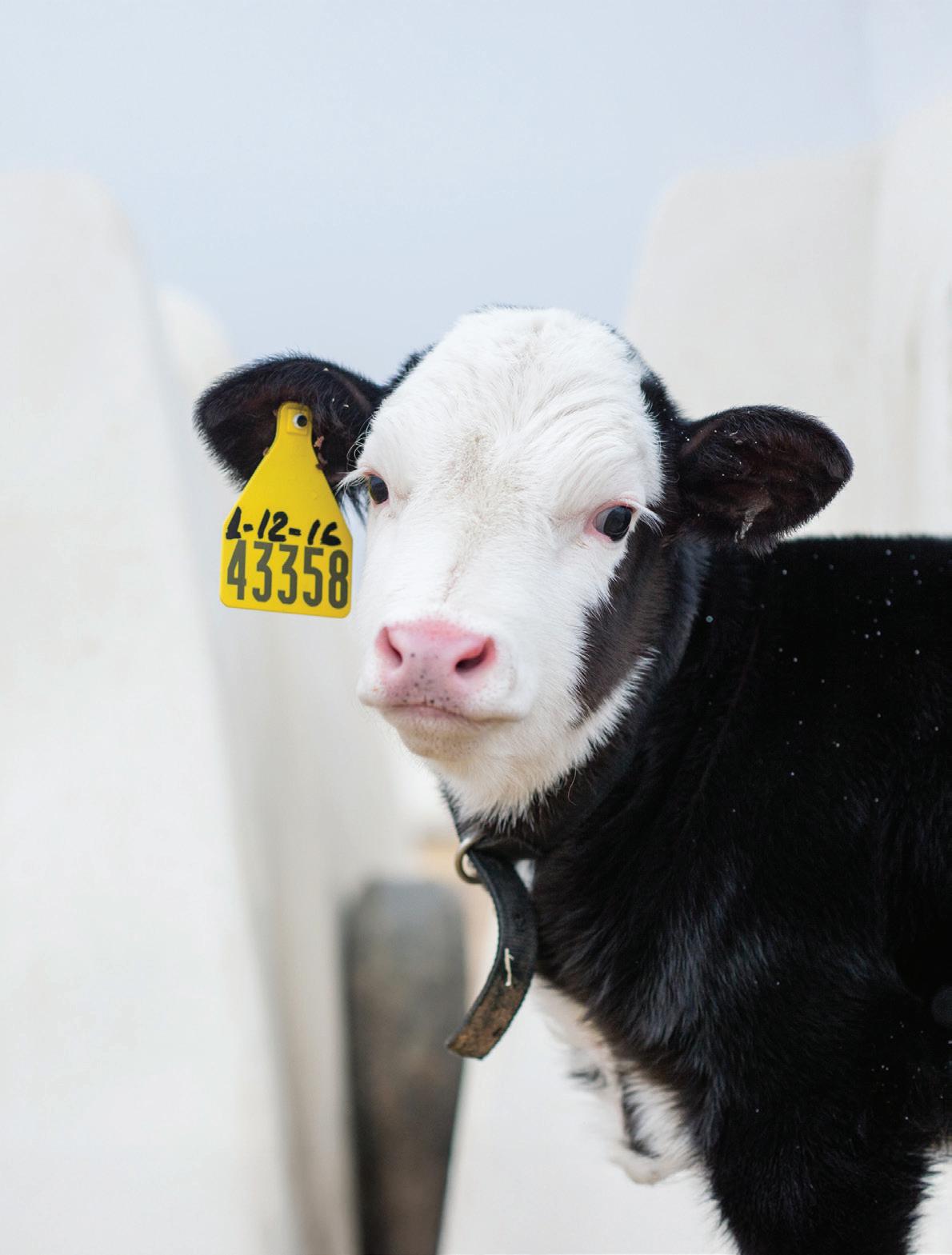
• Over the next five years, the combined $2.7 million contribution will help enhance the curriculum, showcasing food safety, animal care, nutrition, environmental stewardship, employee care and community.
A SUSTAINABLE FUTURE
Down to the Root: North Shore CUSTOMER SPOTLIGHT
North Shore Greenhouses has a solution for the shoppers tired of wilted and wasted herbs. This hydroponic greenhouse operation in Thermal, Calif., sells fresh herbs — roots and all — to consumers.
Leo and Suzette Overgaag started farming in 1987 after moving to the Coachella Valley to raise their children and grow long English cucumbers. Later, the couple transitioned their operation from a commodity crop to herbs, and soon found a niche in the fresh herb business.
“In our business, we obviously look to be profitable,” said Suzette. “However, when Leo and I started this business, we really started it based on raising our own family and coming up with ways to reuse and recycle.”
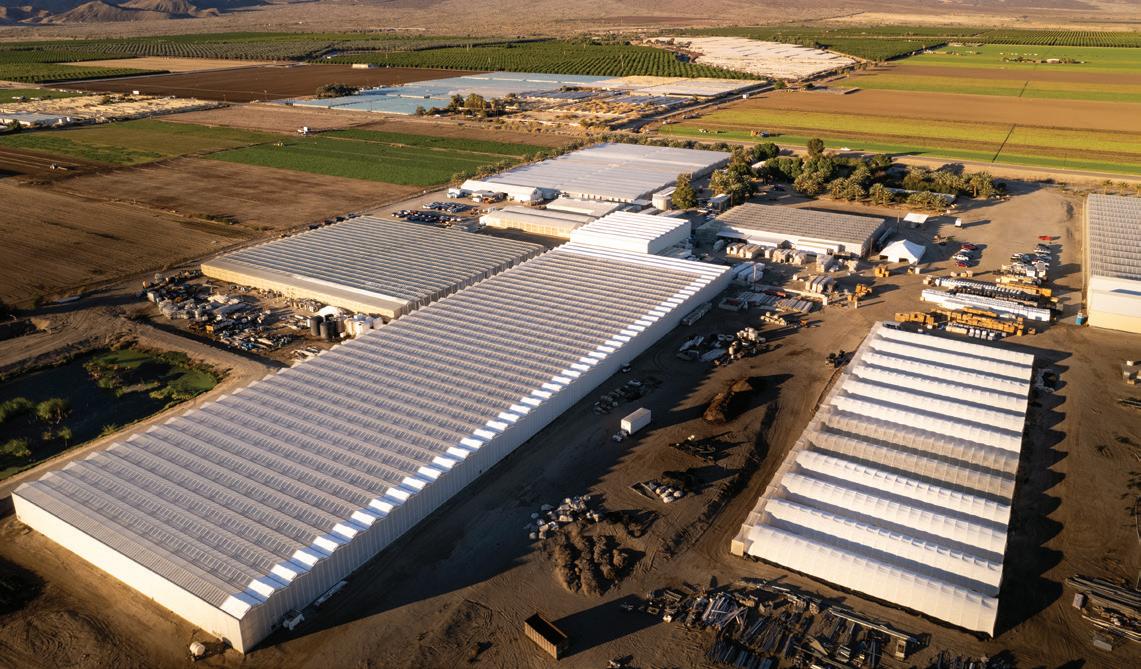
Selling fresh herbs to grow
Leo and Suzette had a vision for an operation that delivers fresh, growing herbs to consumers. To make this a reality, they had to find the right technology, people, and techniques to harvest and prepare the herbs for shipment within a single day.
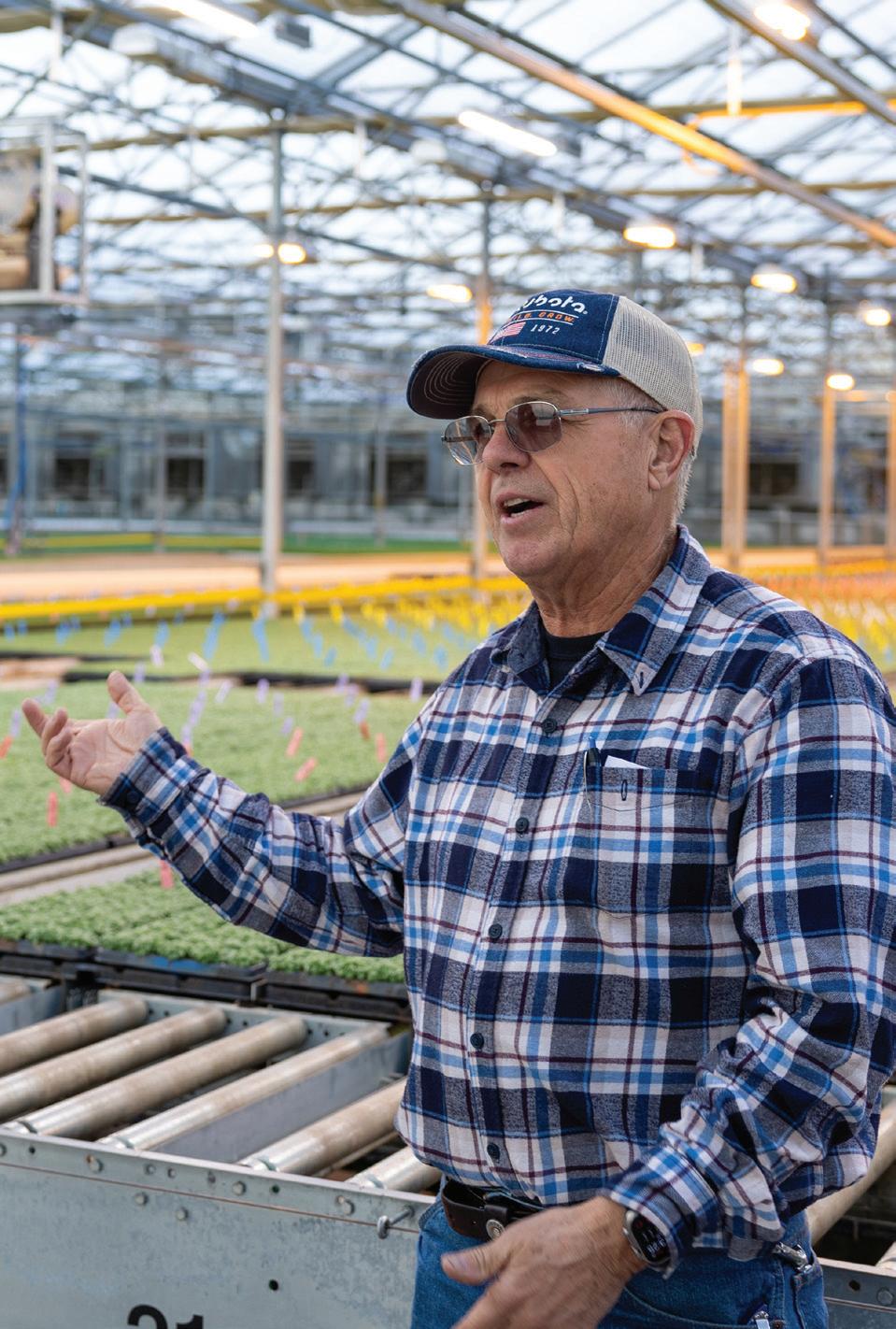
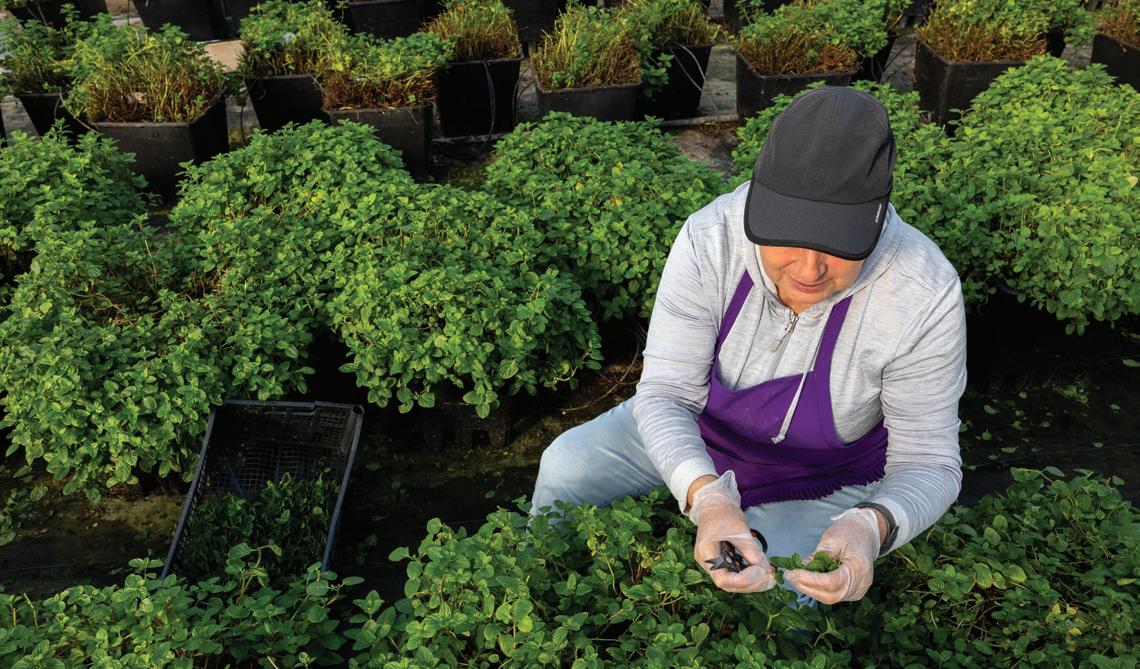
“In our business, we obviously look to be profitable. However, when Leo and I started this business, we really started it based on raising our own family and coming up with ways to reuse and recycle.”

Delivering such a fresh and delicate product to stores is no easy feat. Nick Sullivan, director of research and development at North Shore Greenhouses, is focused on implementing systems that help the business grow and deliver herbs as efficiently as possible.
“We’re using precision irrigation and precision climate control, and that ensures that we can always deliver consistent, high-quality products to the consumer yearround,” said Nick. “So, 365 days a year we’re producing crops, and we are able to produce them on a much smaller plot of land than you traditionally find in conventional horticulture.”
Two sides of sustainability
Conserving water and energy and limiting waste are key focus areas for North Shore Greenhouses. Over the years, the operation has invested in solar panels, taken steps to conserve water with hydroponic growing practices, and became the first culinary herb grower in the U.S. to be designated as sustainable by a third-party certifier.
The greenhouse operation has also invested in creating a sustainable business model that keeps longtime employees engaged and able to put down roots in the community.
“We approach sustainability from two sides. Sustainable employment and sustainable production practices.”
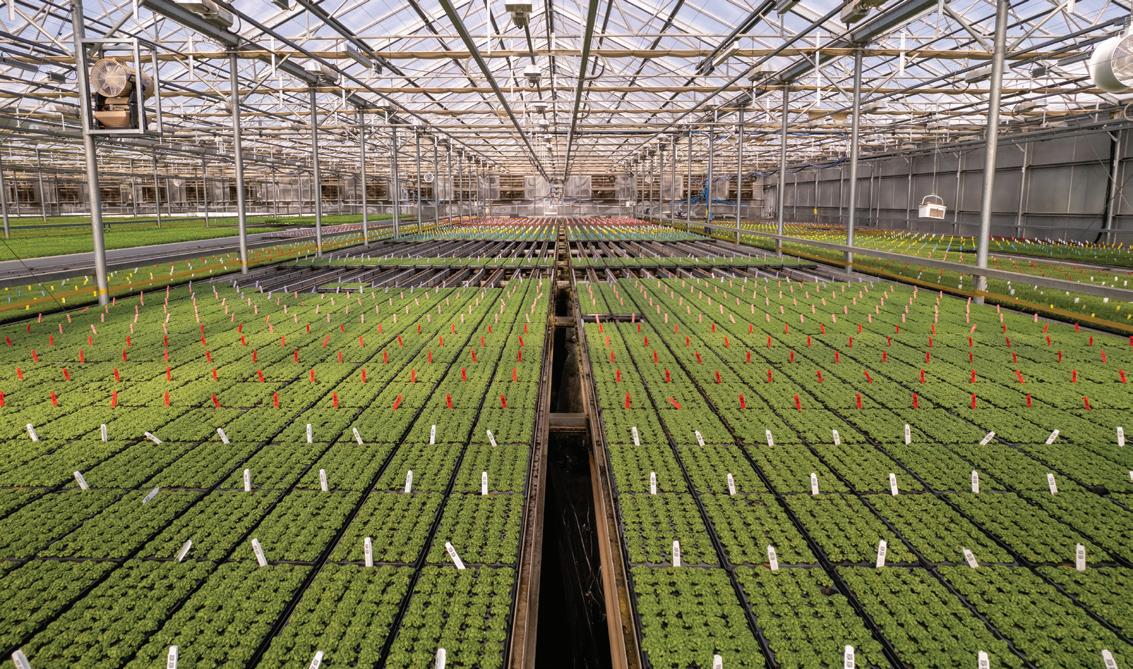
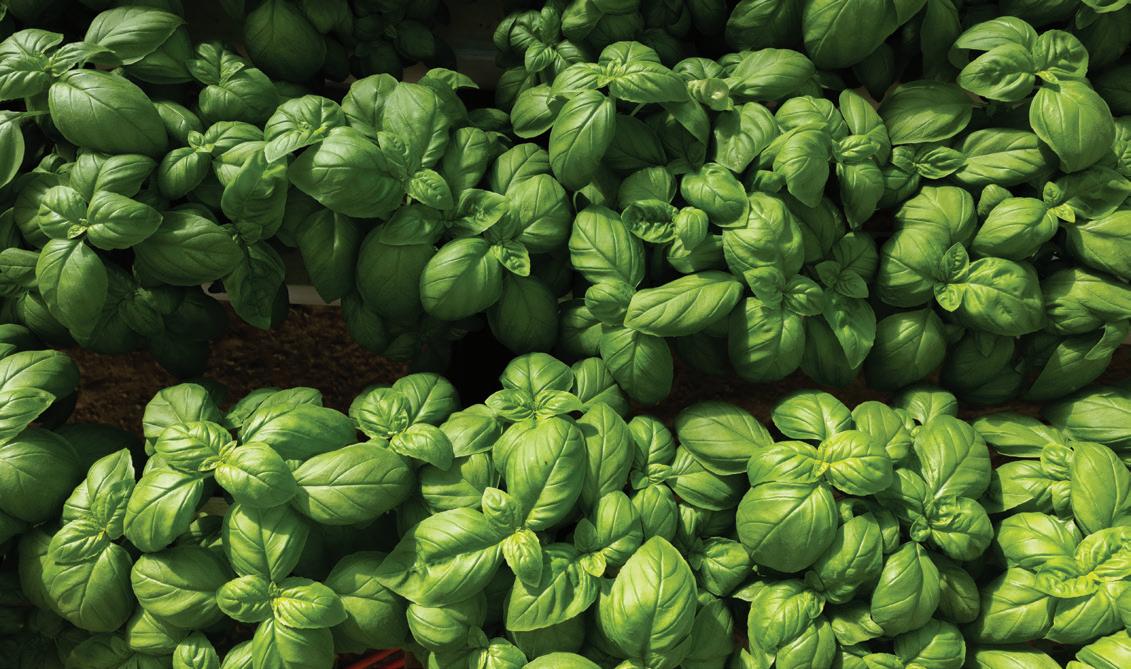
Scan the QR code to learn more.
A SUSTAINABLE FUTURE
“We approach sustainability from two sides,” said Nick. “Sustainable employment and sustainable production practices.”
“The fact that we’re able to produce a crop 365 days a year continuously means that our staff is able to settle here, grow a family, have dependable, year-round work, and be a part of the team for years and years.”
At the end of the day, it’s the flavor and freshness of the herbs that keep Leo and Suzette motivated to do this work. By harvesting and selling herbs with roots, North Shore is supplying home chefs with the freshest, most delicious ingredients possible.
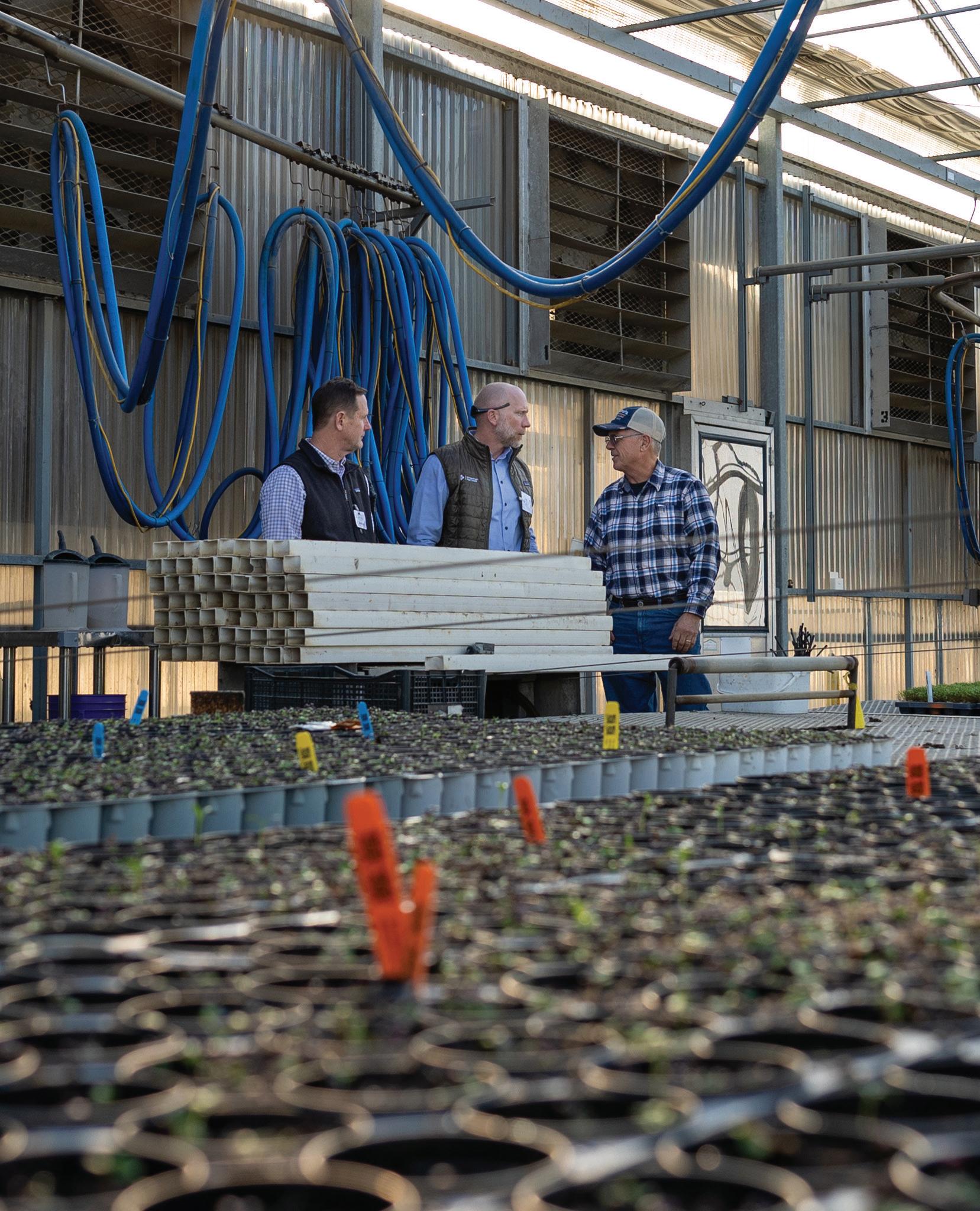
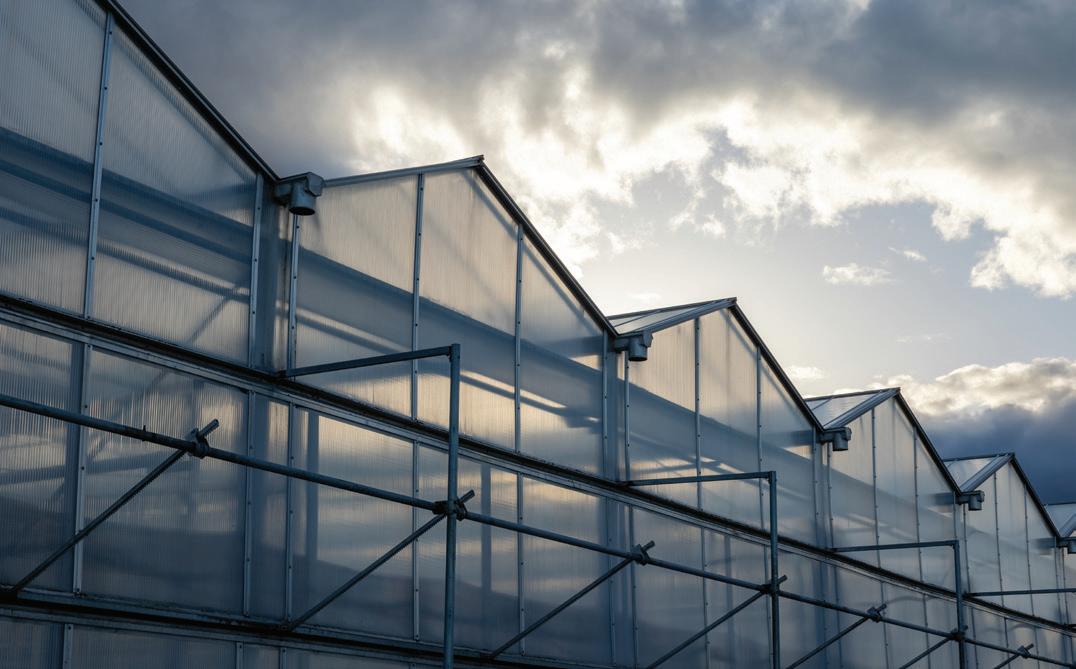
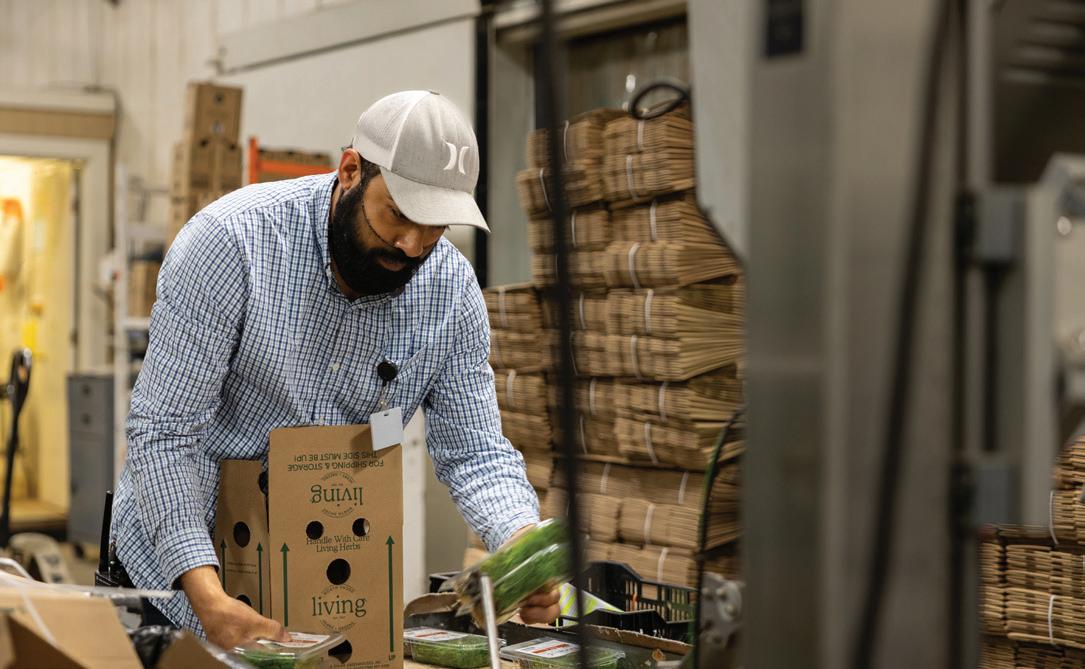
“In agriculture, sustainability means taking care of the land, the business and the people for the long haul. Our customers are doing that. They are sustainably and responsibly ensuring food security for years to come.”
— Curt Hudnutt, Chief Executive Officer
Meet Jason Runyan
• He’s a rancher, a farmer and a family man. And, he is the mission program manager at American AgCredit, where he focuses on strengthening our programs to support communities and the next generation of agriculture.
• His passion and understanding of agriculture is why he’s also a culture ambassador at work — teaming up with his peers from across the country to create opportunities for other employees to connect and learn from each other.
• Growing up on his family’s cow-calf and farming operation means he has seen firsthand the changes in the industry. From an aging farming population to the shrinking set of resources available, helping address these challenges of the future takes him back to his core.
• Coupled with his Farm Credit experience — having worked in lending and credit — Jason understands the delicate risks that our customers face each day.
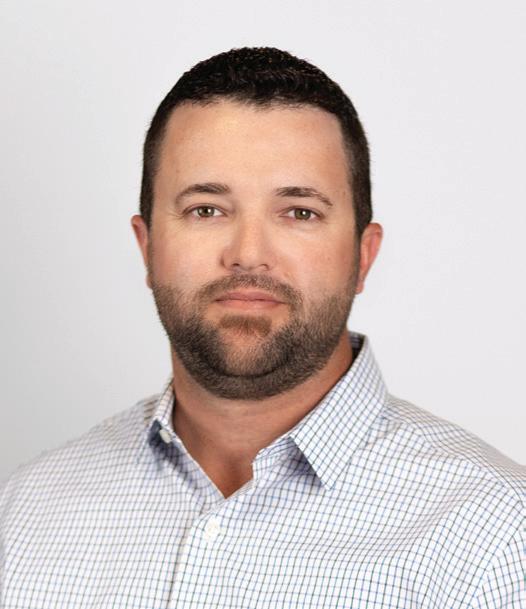
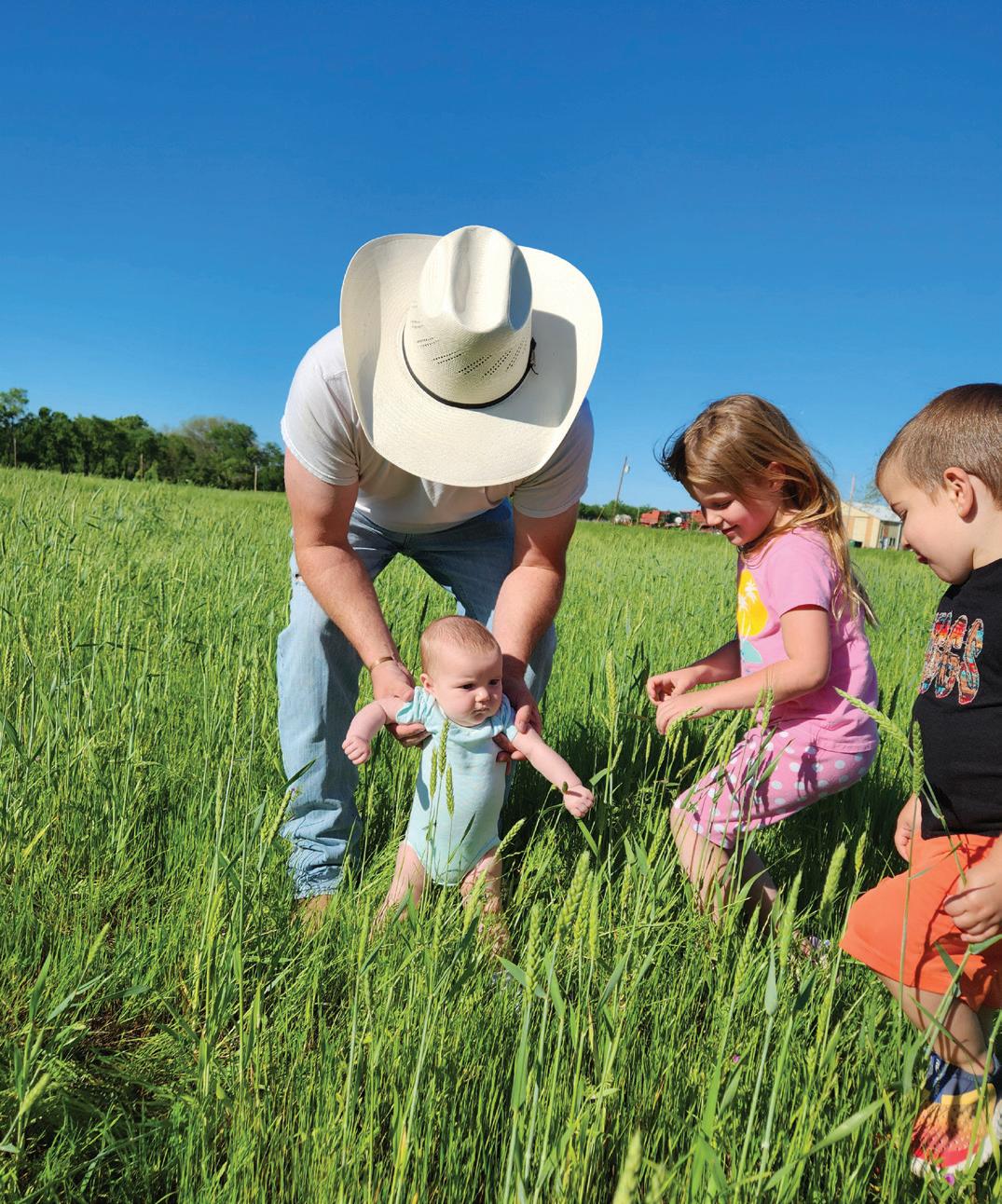
• He comes from a line of agriculture educators — his dad was an ag teacher for 30+ years, and his brother is now an ag professor. Jason understands the value of learning and more importantly, how curiosity can advance practices to address the changes in our industry.
“What I appreciate most about my role at American AgCredit is the opportunity to see how the next generation is thinking about agriculture for the future. They’re questioning why and challenging the norms, which is where true innovation turns into implementation and, hopefully, becomes a better building block for the next generation of producers.” — Jason Runyan, Mission Program Manager
CA CALIFORNIA
Local organizations supported
Amazon Capital Services
Cal Poly Pomona Scholarship
Cal Poly Scholarship
California FFA Foundation
Center for Land Based Learning
Ceres Community Project
Cloverdale Unified School District
Community Alliance with Family Farmers
Community Food Bank of San Benito County
CWA-Palo Verde Valley Chapter - Blythe
Dairy Princess Committee
Emergency Food Bank of Stockton
Eureka County Junior Livestock Committee
Eureka FFA
Extended Child Care Coalition of Sonoma County
Family Farmers Alliance Sonoma County
Farm Bureau
Farm Bureau Foundation of Sonoma County - Poultry Relief
Feeding America Riverside
Ferndale FFA
Food Bank of Monterey County
Food for People
Fortuna FFA
Good for Good Foundation - Sonoma
Growing Hope Gardens
Healdsburg Future Farmers County Fair
Humbolt County Fair Association
Kitchen Table Advisors
Lake County Fair
Lassen County Farm Bureau
Lassen Junior Livestock Auction Committee
Mendocino County Farm Bureau
Merced College Agriculture Division
Merced County Food Bank
Modoc County Junior Livestock Show
Modoc Heritage Foundation
Monterey County Fair
Monterey County Farm Bureau
Mother Lode Fair
Nancy’s Project
North Coast Growers Association
Northern Humboldt Union High School District - Arcata
Northern Humboldt Union High School District - McKinleyville
Our Lady of Mercy School
Pajaro Valley Unified School District
Petaluma High FFA
Redwood Acres Fairground
Redwood Agriculture Education Foundation Redwood Empire Fair
Redwood Empire Food Bank
958,052
Sacramento County Fair
Salinas Valley Fair
Salinas Valley Fair Heritage Foundation
San Diego Ag in the ClassroomScholarship
San Joaquin Ag Fest
Santa Clara County Fair
Santa Rosa Junior College Foundation
Santa Rosa Junior College, Ag Trust Endowment
Second Harvest Food Bank
Second Harvest Food Bank of Santa Cruz
Second Harvest of the Greater Valley
Shoreline Unified School DistrictTomales
Sonoma County Fair & Exposition
Sonoma County Grape Growers Foundation
Sonoma County Winegrowers Foundation
Stanislaus County Fair
Trinity County Fair Association
United Samaritans Foundation
West Sonoma County Union High School District - Sebastopol
Youth Ag & Leadership Foundation of Sonoma County
EMPLOYEE SPOTLIGHT
Meet Jacob DeBoer
• He’s from a 4th generation farming family and a senior marketer on the American AgCredit team.
• His love for ag runs as deep as the roots his family set down farming rice, walnuts, and almonds near Oakdale, California. And it shines through how he serves his community where he advocates for producers in many ways.
• He’s an elected member for the Board of Directors for the Oakdale Irrigation District and understands firsthand the water challenges farmers are navigating in California.
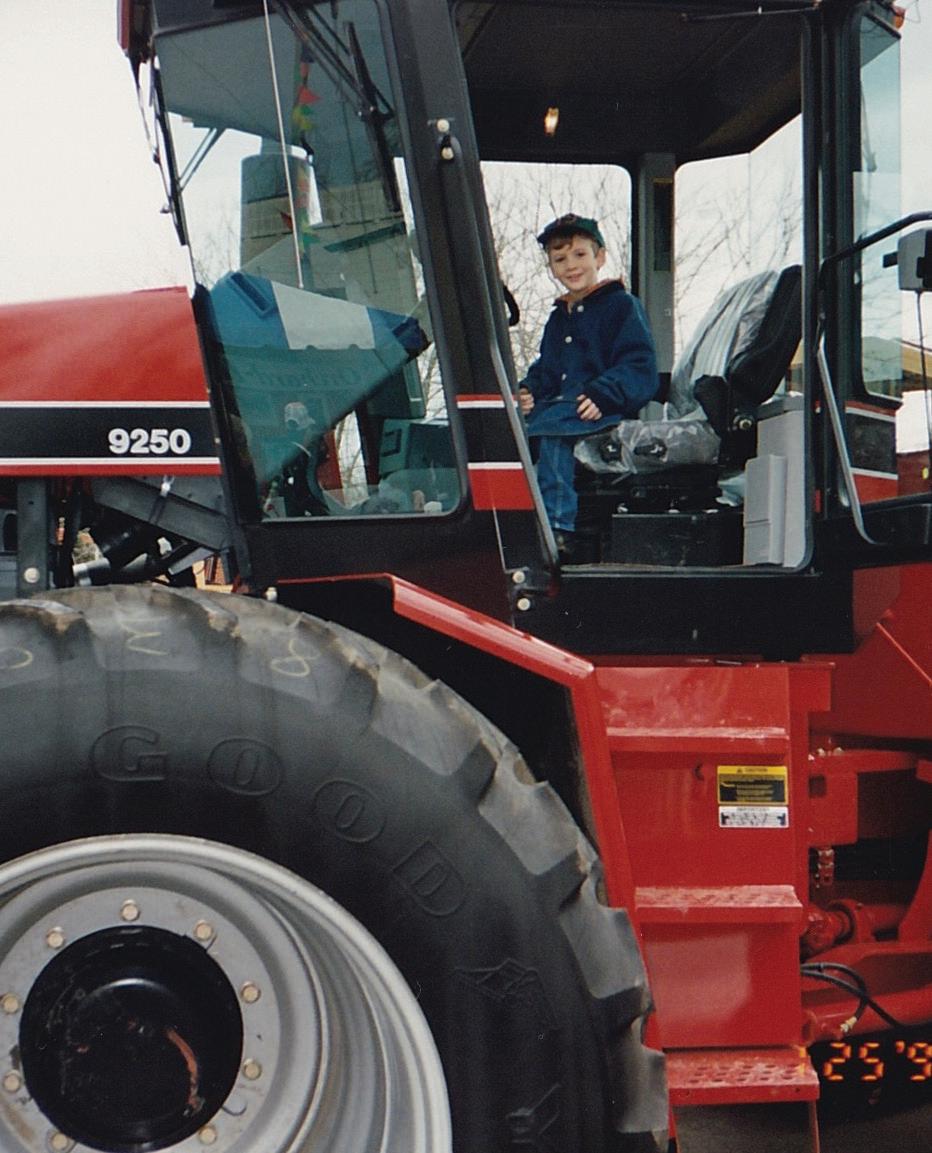
• As a board member at the Stanislaus County Farm Bureau, he represents local agriculturalists at all levels of government.
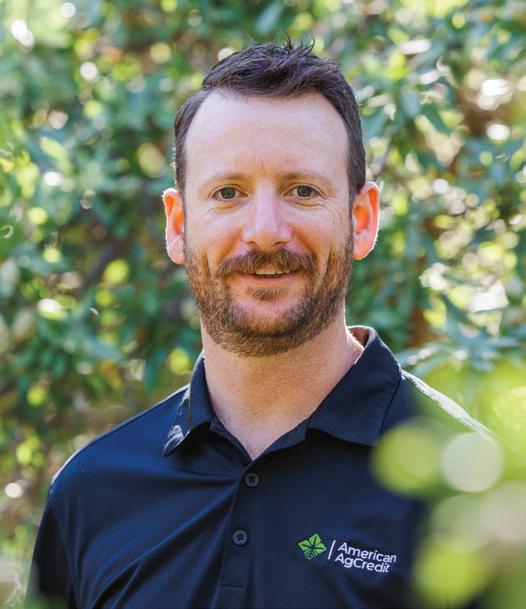
• He’s also a California FFA alumni and current member of the state’s FFA Foundation Board of Directors. Like many, he’s sported the iconic blue jacket.
“Farming is a critical pillar of society, but a disconnect exists between producers and consumers and policy makers. I am energized by this opportunity for producers to step up and put in the time to serve and advocate for our industry.”
— Jacob DeBoer, Senior Regional Marketing Manager
AGYOUTH FINANCING PROGRAM SPOTLIGHT
Humboldt County Fair Association
• American AgCredit offers interest-free financing for youth livestock projects for school-aged students who have an interest in ag – such as through participation in their local 4-H or FFA chapter.
• Students complete an application process, and if approved, go through a process that’s like a dry-run of the loan process.
The employee perspective
• American AgCredit’s Head of Agribusiness Julie Renner has been a member of the Ferndale, California community for more than a decade.
• A former 4-H and FFA member in her own right, Julie volunteers her time to support her local 4-H Club, in which her own daughters are a part of.
• Through this program, students learn the responsibility of caring for another living being and experience firsthand the skills needed to grow a food product. It teaches a significant amount of responsibility – and teaches important business practices like budgeting, financing principles, marketing approaches and more.
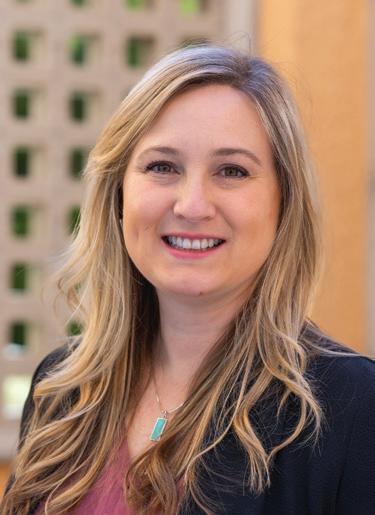
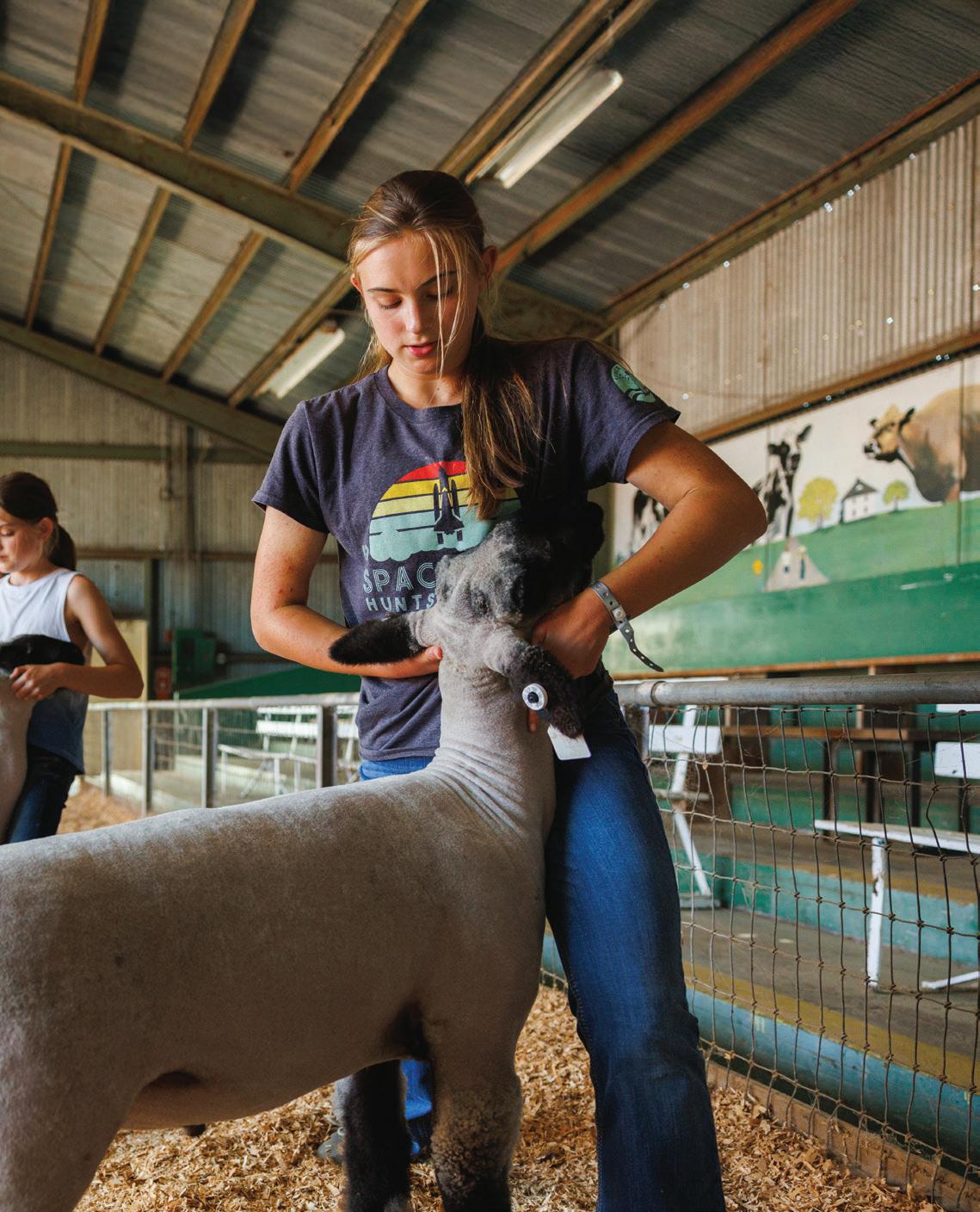
Julie’s role
“I have the privilege of being a 4-H leader in the Ferndale 4-H Club. My job is to help our members learn how to raise a quality food product, how to care for an animal and how to market that animal and prepare it for show and to ultimately be sold in the auction successfully.”
“I was a member of both 4-H and FFA as a child and as a teen. Both of those organizations were instrumental in growing me into the person that I am today.”
— Julie Renner, Head of Agribusiness
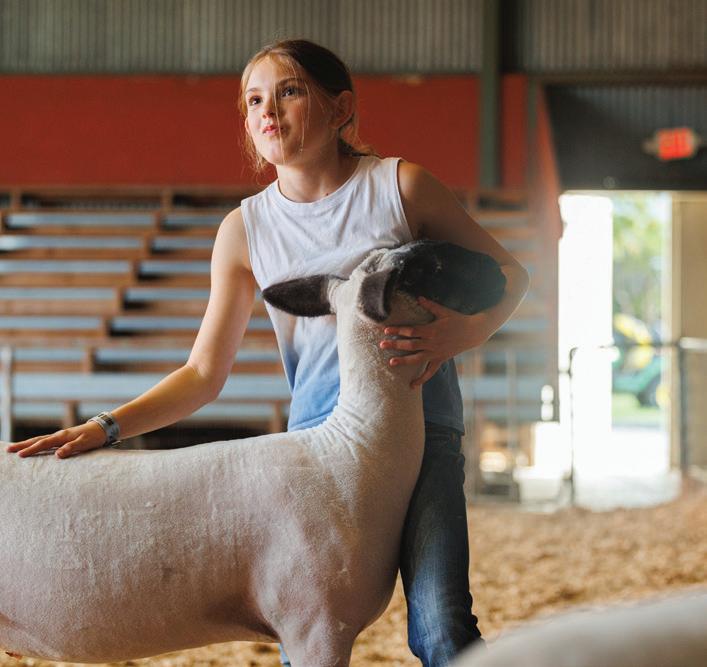
COMMUNITY SPOTLIGHT
Ceres Community Project
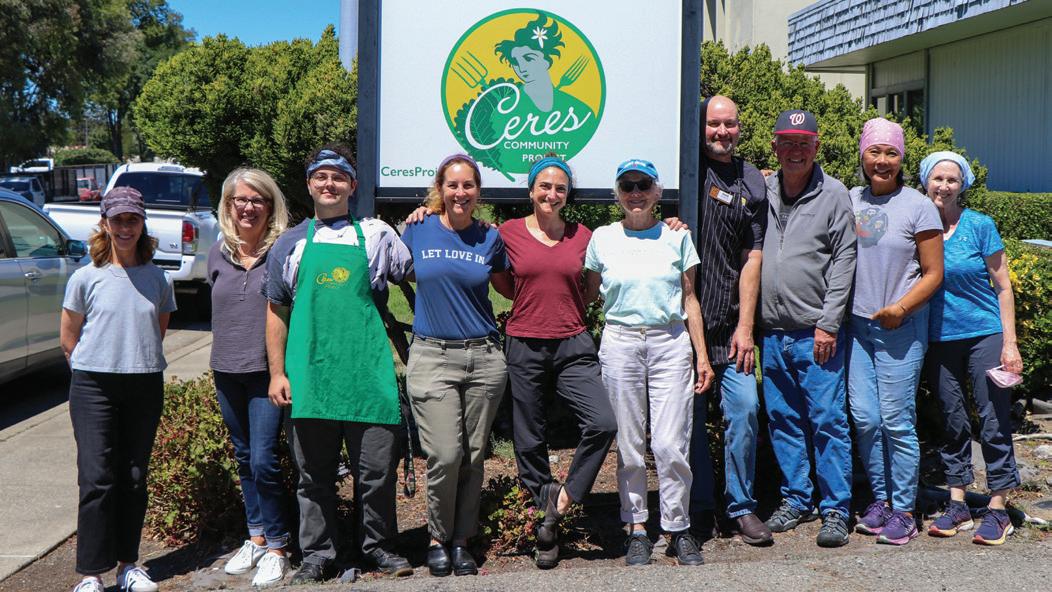
Who they are
Ceres Community Project, based in Northern California, supports individuals dealing with serious illness with free or low-cost, nutrient-rich meals – delivered directly to their home.
• Meals are prepared from scratch by teen volunteers who are mentored by an executive chef and adult volunteers.
• Ingredients for their meals are organic and locally sourced and grown by teen and adult volunteers in Ceres’ gardens.
• They specialize in providing meals to meet the nutritional needs of people living with illnesses like diabetes, cancer and heart disease.
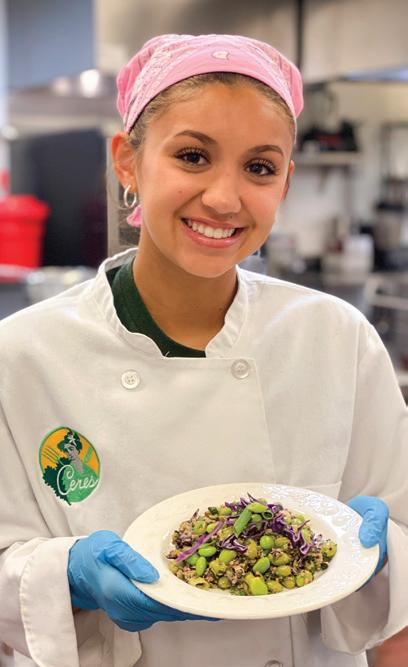
Why it matters
Meeting the nutritional needs for individuals and families facing illness can make a critical difference in their recovery. Bringing adult and youth volunteers together creates a community of support during challenging times for Ceres clients.
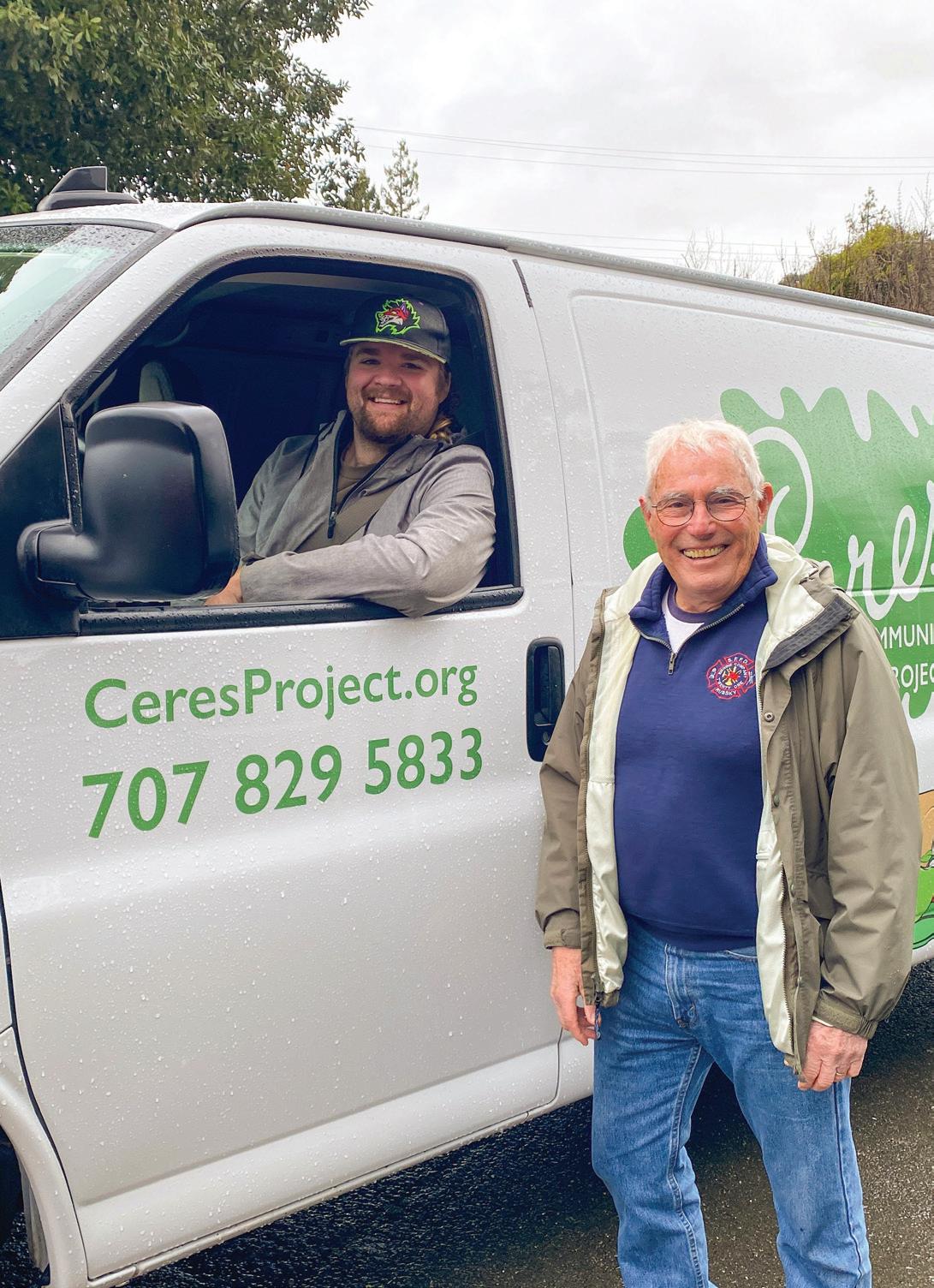
American AgCredit has worked with the Ceres Community Project to support program growth with nearly $300,000 in funding since 2011, including providing nearly $50,000 in 2024 through sponsorships and employee-directed giving, as well as through volunteer opportunities.
The support has provided more than 23,000 medically tailored meals for Ceres clients and families.
Did you know?
Ceres is the name of a Roman goddess who represents agriculture, grains and the idea of nourishment.
CO COLORADO
Local organizations supported
4-H Junior Livestock Committee
Colorado 4-H Foundation
Colorado Farm to Table
Colorado FFA Foundation
Colorado Mesa University Foundation
Colorado State University Scholarship
County of Archuleta
Dairy Max
Delta County Fair Association
Farm Credit of Southern Colorado FLCA
Food Bank of the Rockies
Garfield County
Holy Cross Cattlemen’s Association
La Plata County 4-H
La Plata County Fair
Larimer County Fair
Mesa County 4-H Leadership Council
Metro Caring
Moffat County Extension Fund
Montezuma Extension Office
Montrose County Fair Board
Plimas-Sierra Cattlemen’s Association
Poudre Valley Community Farms
Public Lands Council
COMMUNITY SPOTLIGHT
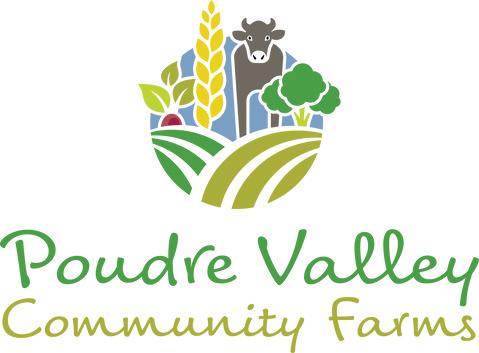
Rocky Mountain Farmers Union Educational and Charitable Foundation
Routt County 4-H Council
San Miguel County
Sand County Foundation
Stop The Ban. Protect Jobs.
Uncompahgre Cattlemen’s Association
Valley Food Partnership
Veterans to Farmers
Vindeket Foods
Weld County Fair
Weld Food Bank
Who they are
Poudre Valley Community Farms’s mission is centered on connecting local food producers to land and water.
The work they do
• Securing land, water, and infra-structure access for local farmers and ranchers
• Supporting conservation agriculture
• Fostering a connected community of people who grow, eat, and care about food.
Why it matters
In Northern Colorado, rising land costs and development pressure make it increasingly difficult for farmers and ranchers to access the land they need. Affordable, longterm access to farmland is essential to the region’s ability to produce food.
2024 impact
Poudre Valley Community Farms stewarded 350 acres of agricultural land in 2024 – conserving it through longterm leases (transferred to qualified producers). Its local producers grew more than 100,000 pounds of produce for the community.
American AgCredit provided funding to support infrastructure and operations efforts.
“The land we’ve conserved, the farmers we’ve empowered, and the future we’re building is a reflection of the shared commitment of our staff, volunteers, partners, and donors who believe that farmland should remain in the hands of those who grow our food and care for the soil.
— Stacy Lishcka, Executive Director, Poudre Valley Community Farms
CUSTOMER SPOTLIGHT
Meet Gwen Cameron
• She’s a 2nd generation peach grower in Palisade, Colorado, taking over the family business from her dad, Thomas.
• Together, they work to grow organic peaches, cherries, apricots, nectarines, plums and pluots on the Western Slope of Colorado across 35 acres.
• They are proud members of the Fair Food Farm Program, which aims to protect and promote the human rights of farmworkers.
• Thomas named the farm Rancho Durazno, which means “peach farm” in Spanish, honoring the migrant workers who do most of the hard labor when it comes to responsibly tending soil and growing the 400,000 pounds of peaches produced on the farm.
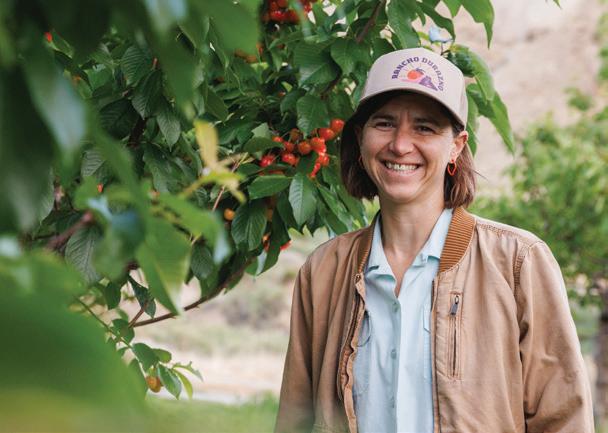
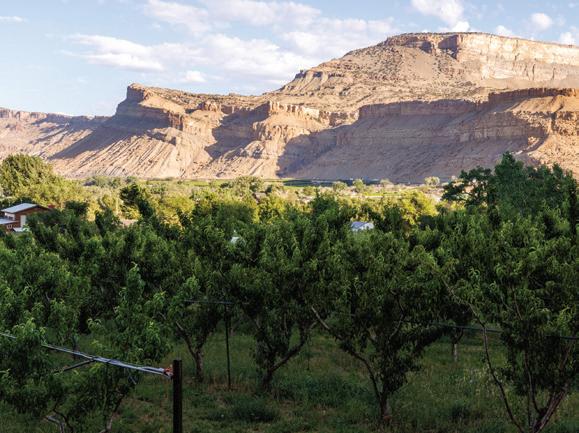
“As a young farmer, there’s just so much to learn. I am a tractor mechanic, a biologist, a salesperson, a marketer, an accountant. It’s a lot to know but that’s also what makes it so interesting to me. And so worth doing.”
— Gwen Cameron, Rancho Durazno
HI HAWAII
Local organizations supported
Agriculture Leadership Foundation of Hawaii
Hawaii Agriculture Conference
Hawaii State Department of Education
Maui Food Bank
University of Hawaii Foundation
Agriculture Leadership of Hawaii
Hawaii FFA Foundation
Hawaii Food Bank
Hawaii Food Basket
COMMUNITY SPOTLIGHT
GoFarm Hawaii: Fall 2024 Grant
Recipient John Casson, Kalili Farm
Who they are
• GoFarm Hawaii aims to enhance Hawaii’s food security and economy by increasing the number of sustainable, local agricultural producers.
• It started as an agribusiness incubator program in 2003 at the University of Hawaii College of Tropical Agriculture and Human Resources (UH CTAHR). It has since grown to be one of the largest beginning farmer development programs in the country.
• In 2022, American AgCredit and CoBank provided a $1 million gift to GoFarm Hawaii’s matching grant program. A new cohort of grant recipients were announced in fall 2024.
• The grant, which must be personally matched by the farmer, provides up to $25,000 per applicant, and may be used to finance a land purchase, operating expenses or equipment.
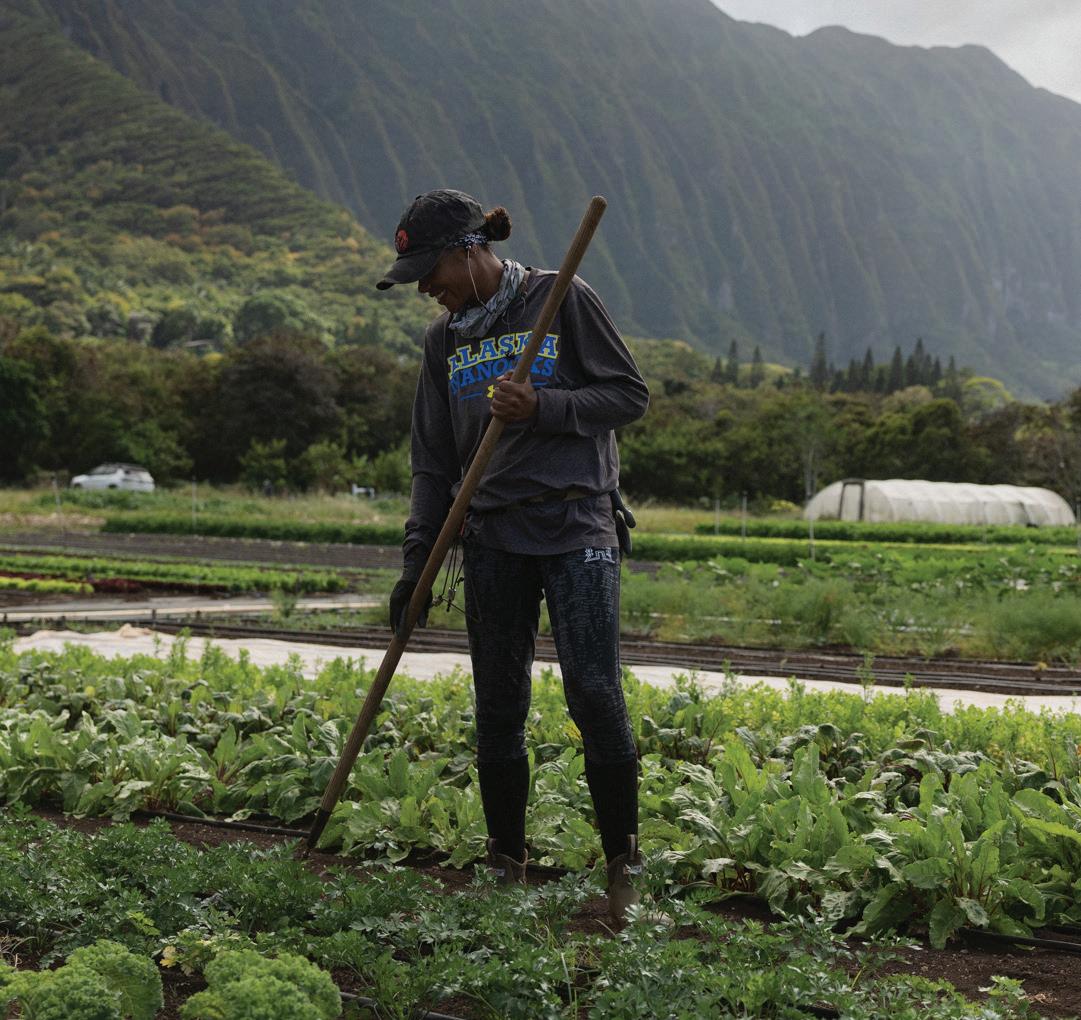
Why it matters
• For the island of Hawaii, agriculture is vital to the state’s local food supply and economy. According to UH CTAHR, ag production in Hawaii is concentrated on smaller farms, with more than a third of farmers having less than 10 years experience.
• The program’s efforts to provide business technical assistance, educational opportunities, and access to a suite of resources designed to remove barriers to farming and agribusinesses can be invaluable to producers early in their journey.
• John’s farming inspiration is his grandfather, who farmed on his 12 ft. x 12 ft. backyard, growing peanuts and everything to help feed his family. John got involved in farming himself when he had interest in growing taro without chemicals. He now specializes in soybeans, tomatoes, sunflowers, and diversified vegetables.
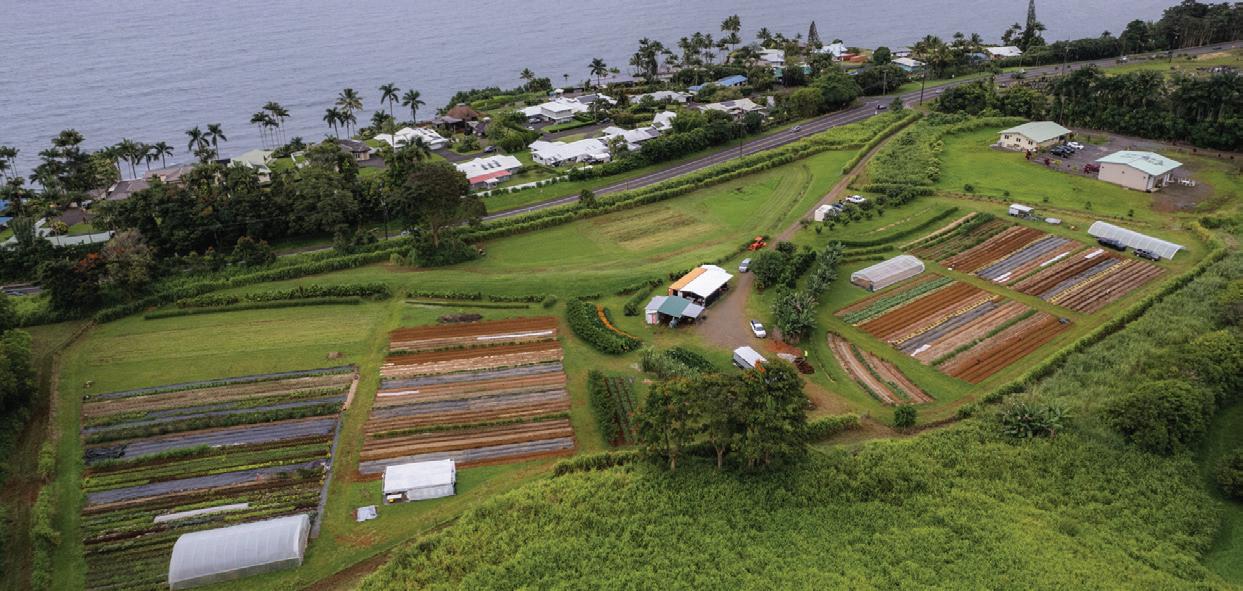
“You have to be flexible to adjust plans when unforeseen situations happen.”
— John Casson, Kalili Farm
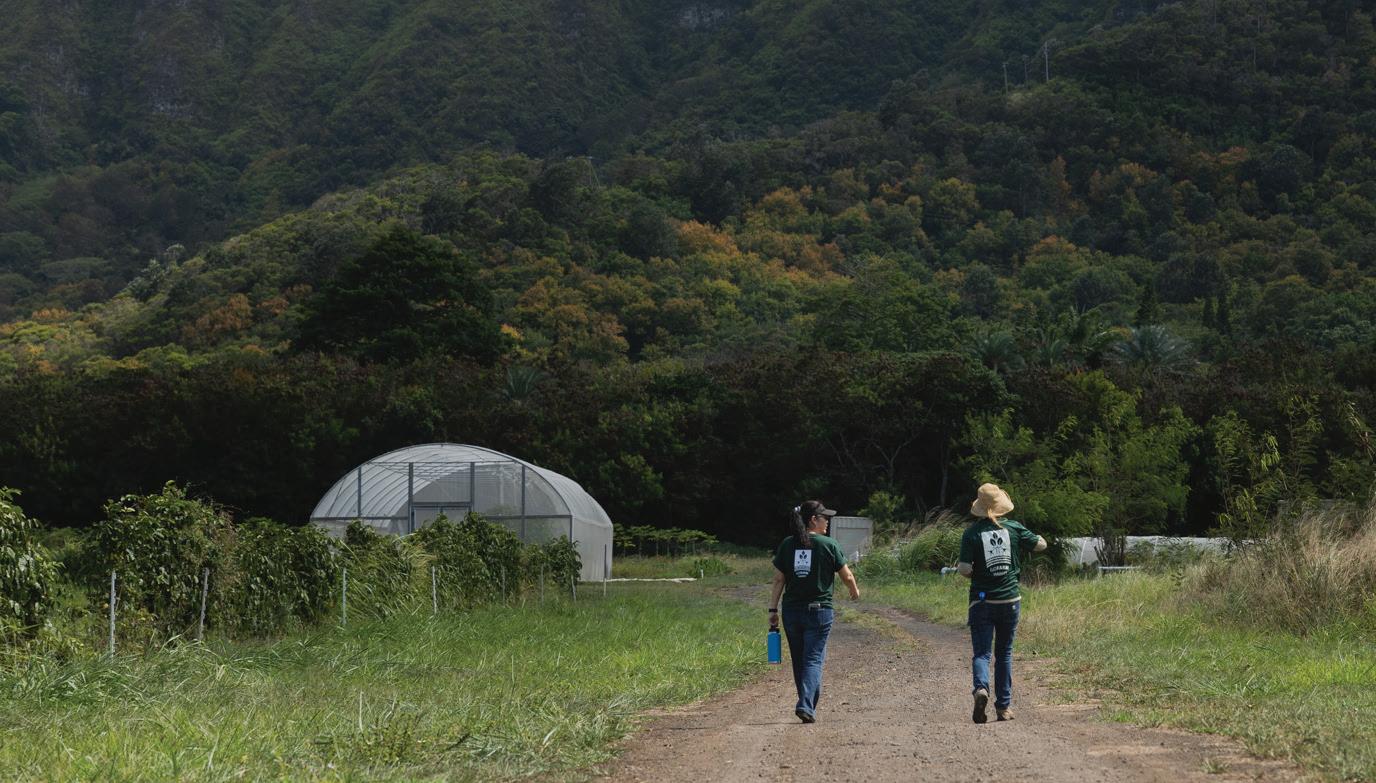
• Kalili Farm received a $25,000 grant match in fall 2024 to secure a lot with fencing, install a screen house, and purchase refrigerator equipment for value-added products and vegetables. The grant will also be used to construct a wash house, purchase a mobile reefer, and install a nursery and sprinkler system.
• These improvements will help John expand his farm’s operations and increase production.
Lessons learned
The distractions and unforeseen circumstances John has encountered as he’s followed his crop plan has been the most surprising challenge so far. “You have to be flexible to adjust plans when unforeseen situations happen.”
KANSAS & OKLAHOMA
Local organizations supported
KANSAS
Agriculture Future of America
Barber County 4-H Council
Barber County Fair Association
Butler County Fair Association
Clark County Fair Association
Cloud County 4-H Courcil
Cloud County Fair Association
Clyde Area Foundation
Comanche County 4-H Council
Comanche County Fair Association
Community Day Care Center of Garden City
Cowley County 4-H Council
Ellsworth County Fair Association
Emanuel Lutheran Church
Emmaus House
Fort Hays State University Foundation
Genesis Family Health
Gray County Fair Board
Great Bend Chamber of Commerce
Grow & Learn Childcare Center
Hamilton County Fair Board
Harvey County 4-H Council
Hope Center of Pratt
ICT Food Rescue
Jewell County Fair Board
Kansas FFA Foundation
Kansas Food Bank
Kansas Grown Farmer’s Market
Kansas State University
Kearny County Fair
Kingman County Fair Association
Kiowa County 4-H Council
Legacy Regional Community Foundation
Lincoln County 4-H Boosters
Manna House
McPherson County 4-H Council
McPherson County Community Foundation
Meade County Livestock Sale
Mustang Farm Foundation
Ottawa County 4-H Foundation
Pawnee County Fair Association
Pratt County 4-H Council
Pratt County Fair Association
Reno County Farm Bureau Association
Reno County Livestock Sale Committee
Saline County 4-H Development Fund
Saline County Fair Association
Scott County Free Fair
Sedgwick County Youth Livestock Foundation
Seward County 4-H Council
Stafford County 4-H Council
Stanton County Auction
Sumner County Jr Livestock Auction
Sylvan Grove Fair and Agriculture Association
The Treehouse
Unified School District - Wichita County Schools
United School Administration
Leadership Foundation
OKLAHOMA
Oklahoma FFA Foundation
Oklahoma State University
Blackwell FFA
Blackwell OK-Okies 4-H
Ponca
EMPLOYEE SPOTLIGHT
Meet Megan Bergstrom
• She’s a connector. As a regional lead for our local giving efforts in Kansas, Megan connects American AgCredit to the worthy causes in the area that align with our Farm Credit mission.
• She’s Kansas born and bred with a background in mortgage lending and financial services. It wasn’t until joining American AgCredit in 2017 that she gained more insight into agriculture and more exposure to the many organizations doing the good – and hard – work in the community to feed and support people.
• She’s an avid volunteer in the Wichita, Kansas community, with a big heart and go-getter attitude. Megan is no stranger to leaning in as a pillar of support. She’s worked with the Kansas Farmer’s Market to find ways to expand its reach and also served on a small committee to help a local service agency, the Treehouse, plan a health and wealth event to provide resources to mothers in crisis.
COMMUNITY SPOTLIGHT
Expanding food access:
Kansas Food Bank Western
Kansas Distribution Center
The initiative
• As part of the Kansas Farm Credit Alliance, American AgCredit and other Farm Credit associations contributed more than $150,000 to the Kansas Food Bank to establish a new distribution center in Garden City, Kansas, serving 31 counties in Western Kansas.
• The effort increased food distribution by 50% and doubled the amount of fresh produce distribution through Kansas Food Bank’s network of partner food pantries and hunger partners.
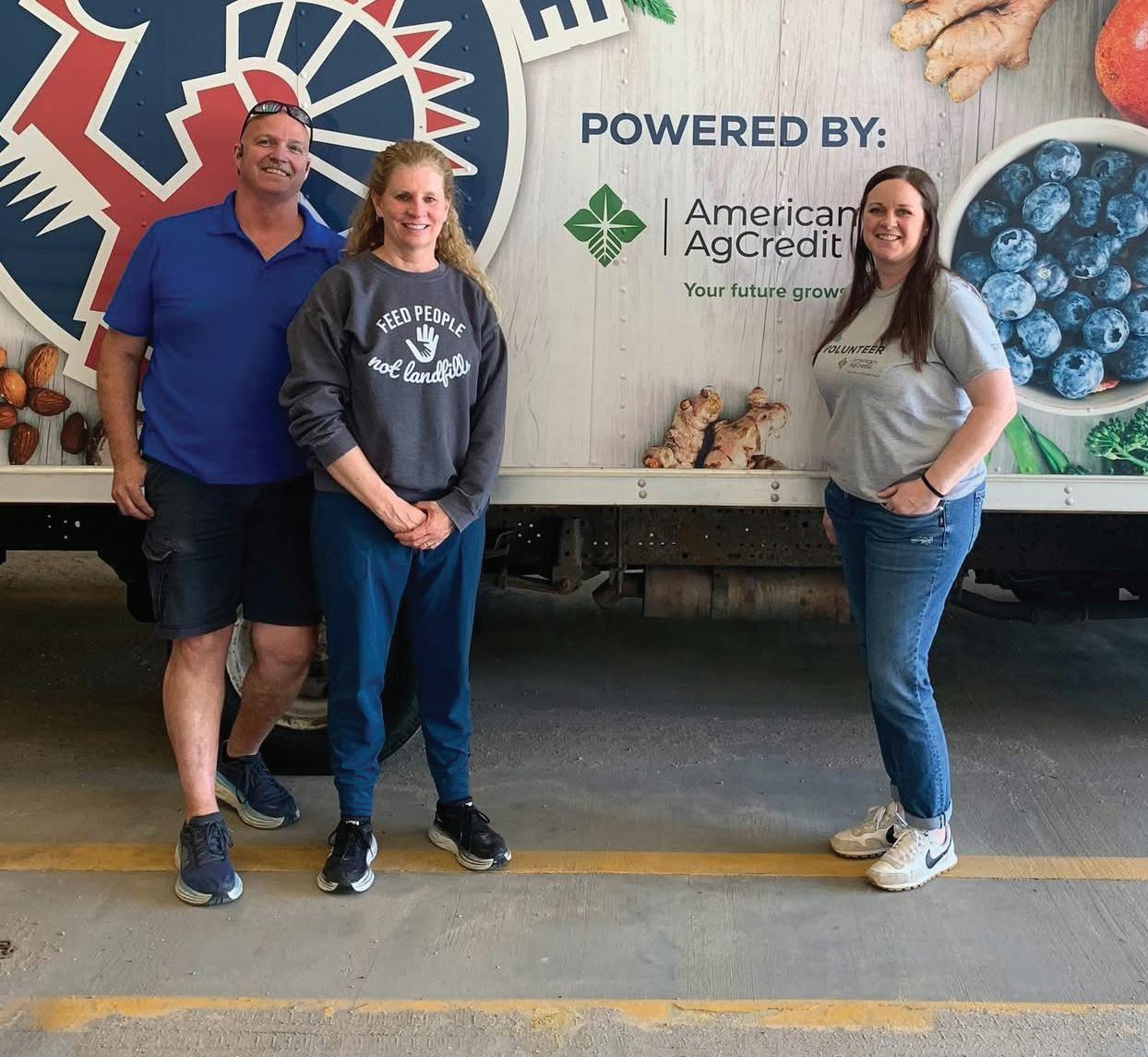
• She’s even spent a day with ICT Food Rescue, an organization that rescues food from being thrown out from local restaurants and delivers the surpluses to shelters, food pantries, recovery centers, foster homes and more. In 3 hours, they were able to pick up more than 5,500 pounds of food to be redistributed in the community!
“I’ve been able to learn and experience how interconnected our community really is – once you’re connected to one organization, you feel connected to all the others. That really shows how they come together for a common goal with different ways to support.
— Megan Bergstrom, Senior Retail Processing Specialist
Why it matters
• 1 in 7 Kansans experience hunger, and according to Feeding America’s Map the Meal Gap study, food insecurity rates are only increasing.
• Food insecurity rates across the Kansas Food Bank’s 85-county service area increased from 10.3% in 2021 to 13.5% in 2022 – with childhood hunger reaching 20.5% from 14.7%.
• American agriculture and our nation’s food security go hand-in-hand. With more than 200,000 people across Kansas facing food insecurity – these efforts remain fundamental to our mission.
NEW MEXICO
NM
818,078
Local organizations supported
Allprint Graphics
Belen Consolidated Schools
Bi-County Fair
Catron County Fair Association
Centennial FFA Alumni
Chaves County Jr Livestock
Church on the Move, Inc.
Cliff-Gila Fair Association
Clovers 4 Kids Booster Club
Colfax County Fair Association
Community Foundation of Southern New Mexico
Corona Public Schools
County of Lea
County of Torrance
Cowboys For Cancer Research
Curry County 4-H Council
Curry County Jr. Livestock Sale Committee
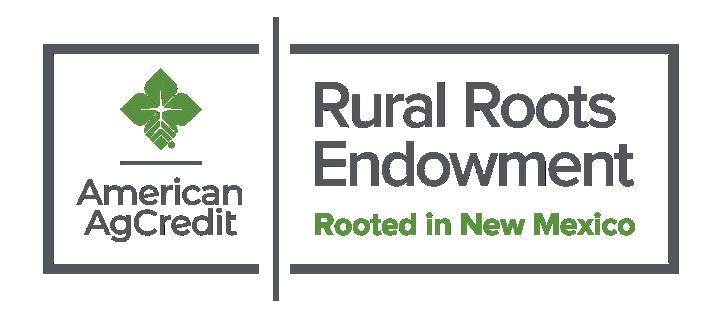
De Baca County Fair Board
Dexter FFA Alumni
Eastern NM State Fair Board
Eddy County Fair Association
El Paso County Livestock Show Association
El Ranchito de los Ninos Foundation — NM
EXPO NM
Fort Sumner Municipal Schools
Guadalupe County Fair Board
Harding County Fair Association
Hidalgo County Fair Board
Junior Livestock Exp
Lincoln County Fair Association
New Mexico Farm & Livestock Bureau
New Mexico FFA Association
New Mexico FFA Foundation
New Mexico High School Rodeo
Association
New Mexico Junior Livestock Foundation
New Mexico State University
New Mexico State University Foundation
Otero County Fair Association
Quay County Fair Board
Rio Arriba County Fair Association
Roadrunner Food Bank
Roosevelt County Fair Board
Roosevelt County Goat & Lamb Jackpot
Roswell Chamber of Commerce
Roswell Volleyball, Inc.
Sand County Foundation, Inc.
Sierra County Fair Association
Socorro County Fair & Rodeo Association
South West Feeds
Southern New Mexico State Fair &
In 2024, American AgCredit awarded grants to 23 New Mexico agriculture-related organizations totaling $204,000.
Launched in 2023 after the merger between Farm Credit of New Mexico and American AgCredit, the $10 million endowment focuses on investing in the long-term viability, sustainability, and profitability of agriculture in New Mexico.
DISASTER RELIEF
Neighbors Helping Neighbors
What happened
In October 2024, devastating floods overwhelmed the Roswell, New Mexico community, taking the lives of two individuals and destroying countless homes, businesses and local infrastructure.
Some perspective
• Rainfall hit a new daily record, with 5.78 inches of rain, with some nearby ranches totaling more than 10 inches of rain.
• For this part of the country, the amount of rain overwhelmed its infrastructure. Roswell averages 12 inches of rain annually. The flooding damaged multiple dams and levees, and its drainage system.
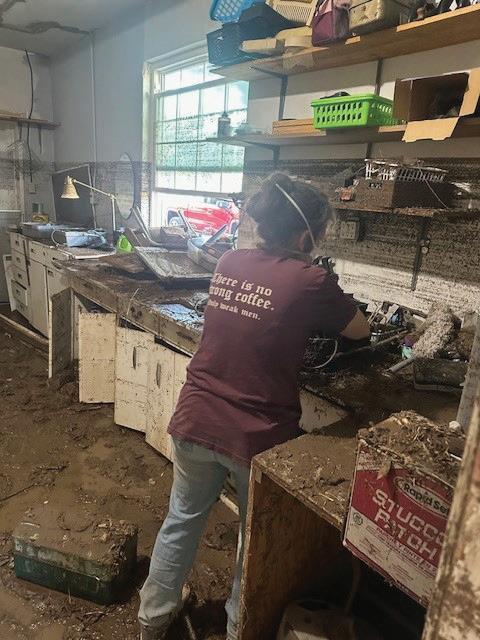
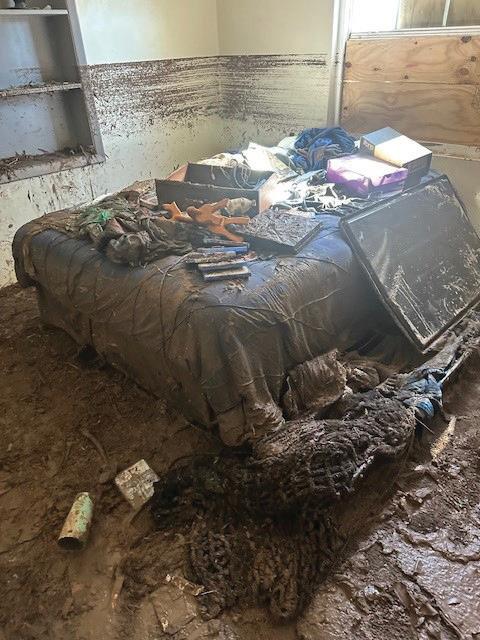
The response
American AgCredit donated $20,000 to support local relief efforts. This contribution was directed to two key organizations: the Community Foundation of Southern New Mexico and Church on the Move, both of which are at the forefront of the relief efforts.
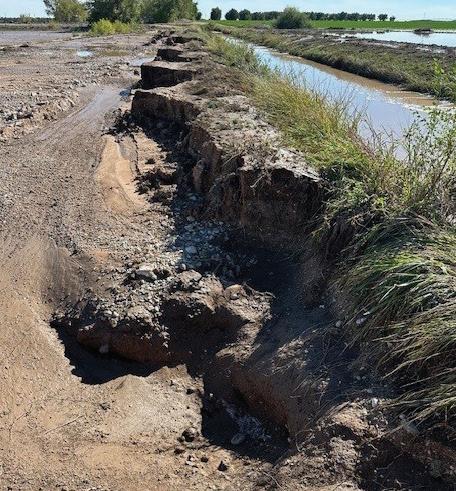
“This area has not faced this type of event or devastation in a very long time, if ever. Although tragic and devastating, it has revived a sense of community and neighbors helping neighbors.”
— Jeremy Kohler, Head of Regional Banking, New Mexico
These organizations were on the ground, providing clean up support and financial resources to support the immediate and long-term recovery needs for the people, animals, and places affected by the devastation in Roswell and surrounding areas in Chaves County.
Advocacy for rural America: National Center for Frontier Communities
Who they are
• The National Center for Frontier Communities (NCFC) has been the national advocacy voice for the frontier and has served as a central point of contact for referrals, information exchange, and networking among geographically separated communities.
• They are the only organization solely dedicated to frontier issues in the nation.
The work they do
• Examples of NCFC’s work include advocacy to pass a bill to establish The New Mexico Rural Equity Ombuds Office, which is meant to ensure frontier and rural equity through the state legislative, policy and grant-making processes, as well as to provide a conduit to develop solutions for ongoing issues of geographic equity across the state.
• This model is now offered for other states to adopt.
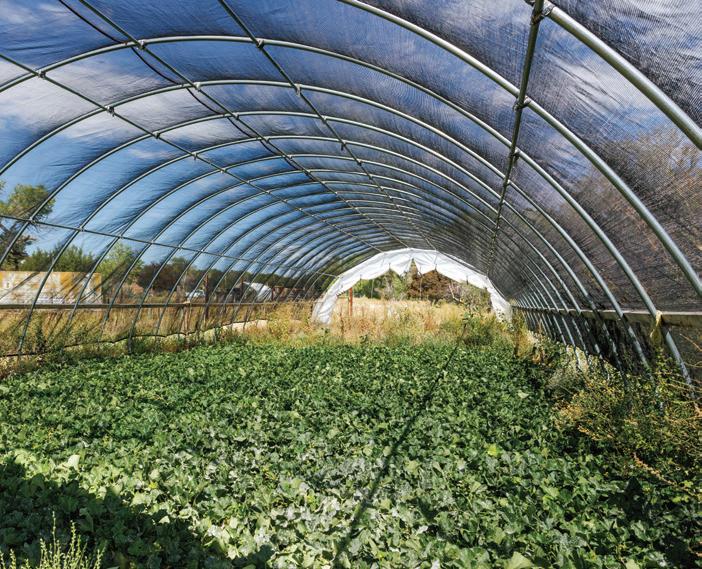
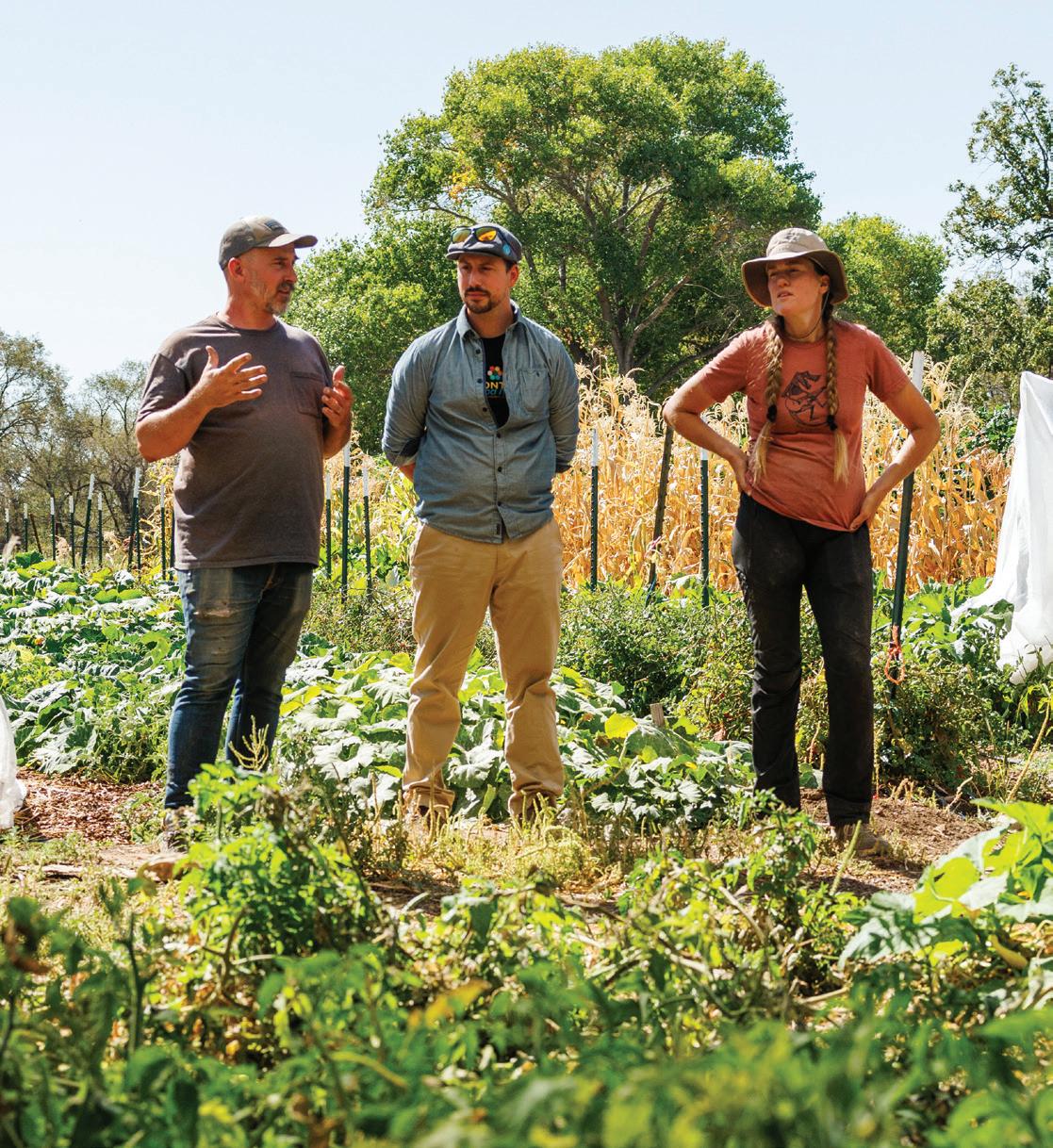
56% of America is considered to be frontier, with over 12 million people living in remote areas.
Why it matters
• Fifty-six percent of America is considered to be frontier, with over 12 million people living in remote areas. Despite differences, these communities share issues common to sparse populations that are chronically underserved by traditional public policy frameworks.
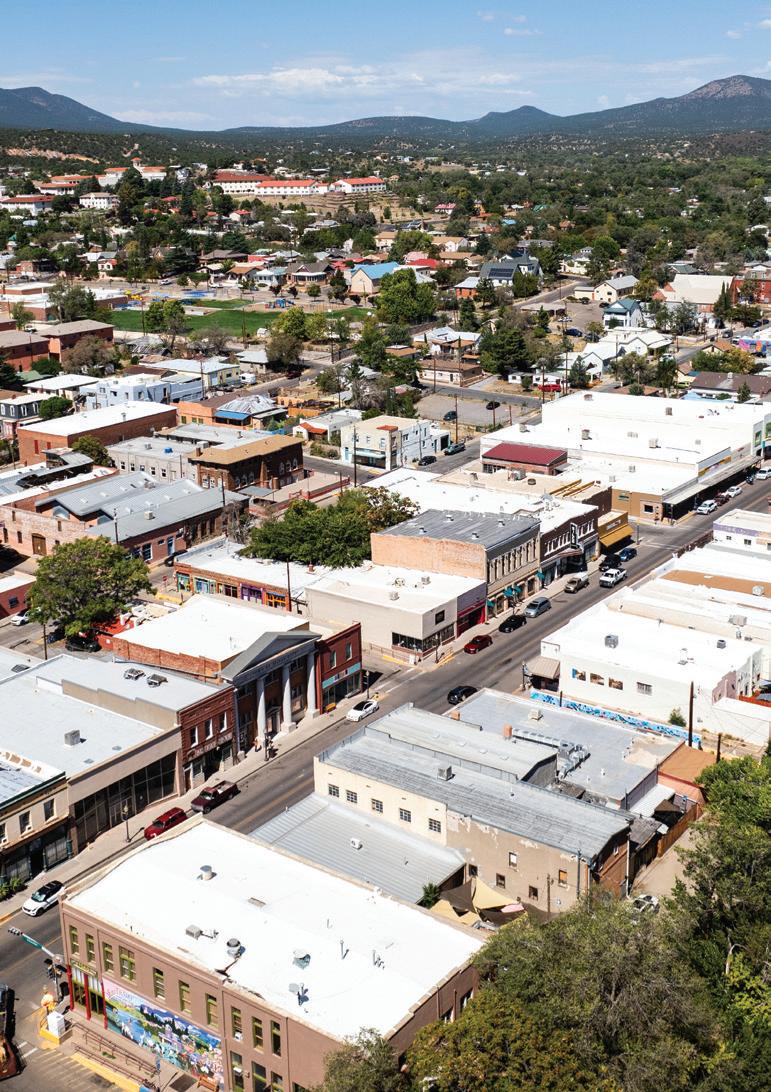
NEVADA
Local organizations supported
Elko County Fair Board
Food Bank of Northern Nevada
Friends in Service Helping
Indian Valley Food Pantry
Nevada Agriculture Foundation
Nevada FFA Foundation
Nevada Junior Livestock Show Board
Silver Sage FFA Chapter
Tri County Junior Livestock Show
Friends In Service Helping (FISH)
CUSTOMER SPOTLIGHT
Frey Ranch — Fallon, Nevada
Indian Valley Food Pantry
Nevada FFA Foundation
Soulful Seeds
The Food Bank of Northern Nevada
University of Nevada, Reno BFR Program
“Be good to the land and the land will be good to you. And for us, as farmers, if we don’t take really good care of our soil, our environment, our natural resources, then we don’t have a future. My goal in life is to take really good care of it and pass it on to my kids. We’re really just temporary stewards of the land. We don’t really own it, we’re just temporary caretakers.” — Colby Frey
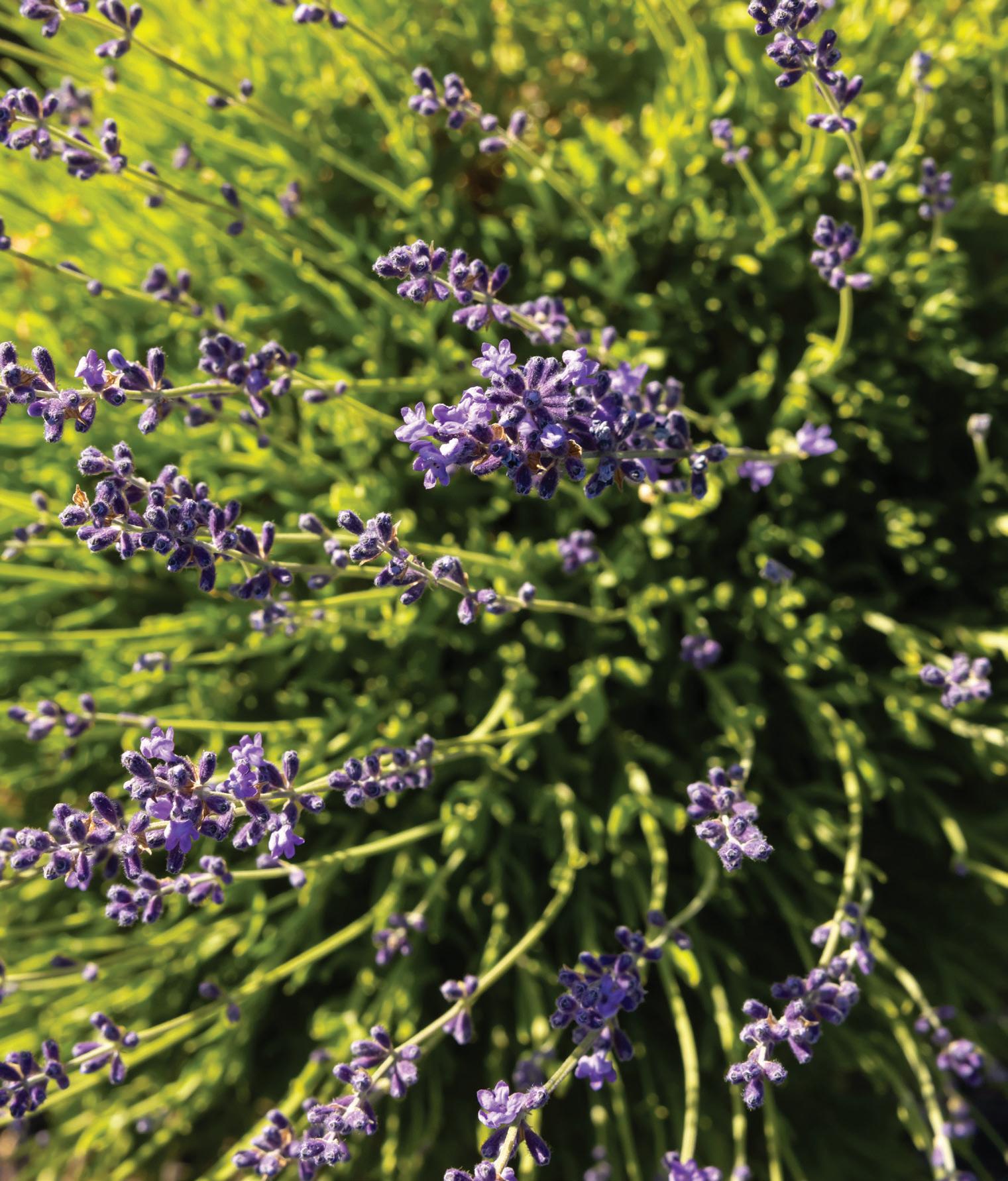
Your future grows here
